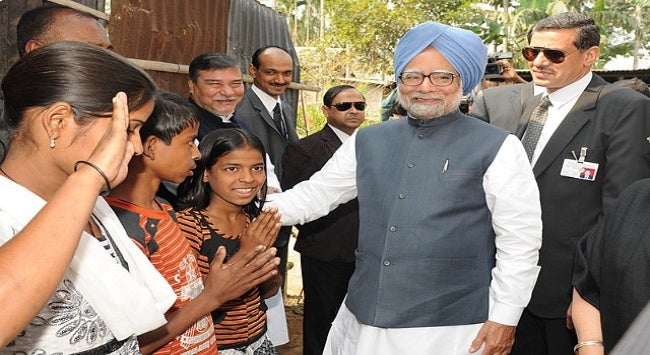
| Title: | Dr Manmohan Singh: India’s Humane Economic Reformer |
| Author/s: | Amitendu Palit |
| Abstract: | Dr Manmohan Singh changed India’s destiny by introducing economic reforms and managing them inclusively. His irreversible policies have contributed to India’s economic shine and strategic prominence. |
| Date: | 30 December 2024 |
| Read More |
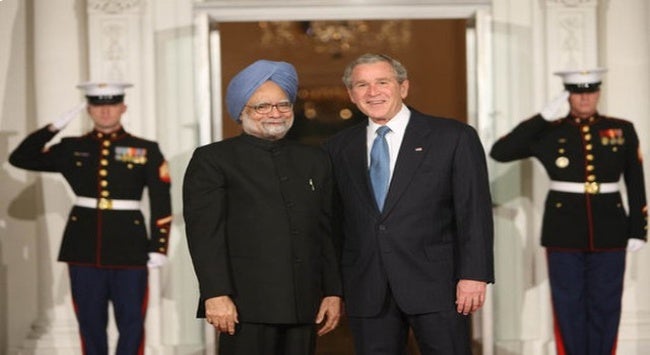
| Title: | Prime Minister Manmohan Singh’s Indian Foreign Policy Legacy |
| Author/s: | Chilamkuri Raja Mohan |
| Abstract: | Indian Prime Minister Manmohan Singh’s success in transforming the relations between India and the United States stands as his most enduring foreign policy legacy – a testament to his vision and resolve amidst formidable domestic and international obstacles. His efforts at security regional reconciliation with Bangladesh, China and Pakistan were less successful. Ironically, Singh’s diplomatic legacy perhaps could have been much stronger if there had been substantive domestic political support for his foreign policy initiatives. |
| Date: | 30 December 2024 |
| Read More |
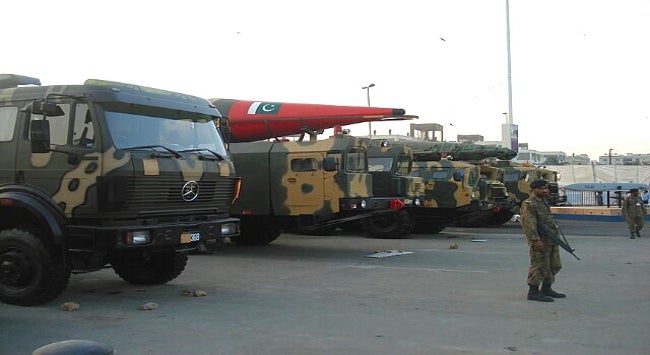
| Title: | Pakistan’s Missile Programme: The United States Imposes Sanctions |
| Author/s: | Chilamkuri Raja Mohan |
| Abstract: | Although Pakistan views its nuclear and missile programme as primarily directed against India, its implications are wider and has drawn sanctions from the United States. The growing reach of these missiles as well as the danger of their proliferation seem to have nudged the Joe Biden Administration into imposing new measures against the growing sophistication of Pakistan’s missile arsenal and its potential impact on the volatile Middle East region. |
| Date: | 24 December 2024 |
| Read More |
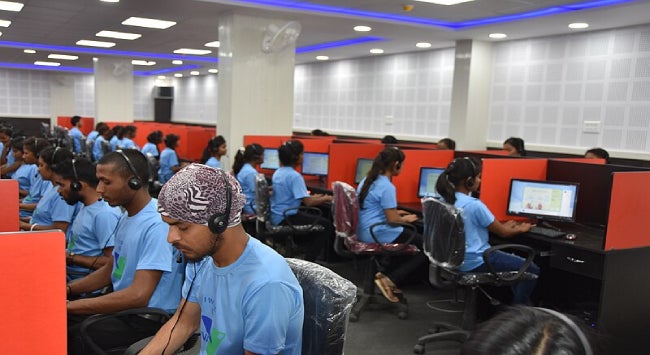
| Title: | India’s GCCs Drive Service Exports Ahead of Manufacturing |
| Author/s: | Amitendu Palit |
| Abstract: | Global capability centres (GCCs) are driving high growth of India’s service exports. They are imparting stability to the external sector and creating local jobs. Existing incentives should shift to encouraging more GCCs. |
| Date: | 23 December 2024 |
| Read More |
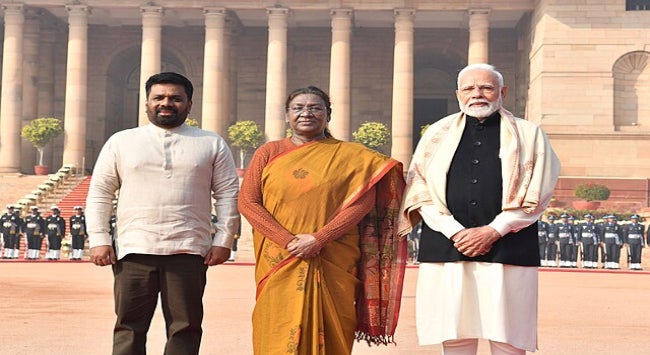
| Title: | Sri Lankan President Dissanayake’s India Visit: Geopolitical and Security Challenges under the NPP Government |
| Author/s: | Rajni Gamage, Tanujja Dadlani |
| Abstract: | Sri Lanka’s President Anura Kumara Dissanayake recently made his inaugural state visit to India, marking an important juncture in bilateral relations between the two neighbours. The National People's Power secured a strong domestic mandate in the November 2024 elections by winning a parliamentary supermajority. This visit represented an opportunity to strengthen ties with India while navigating complex domestic, geopolitical and security challenges. |
| Date: | 19 December 2024 |
| Read More |
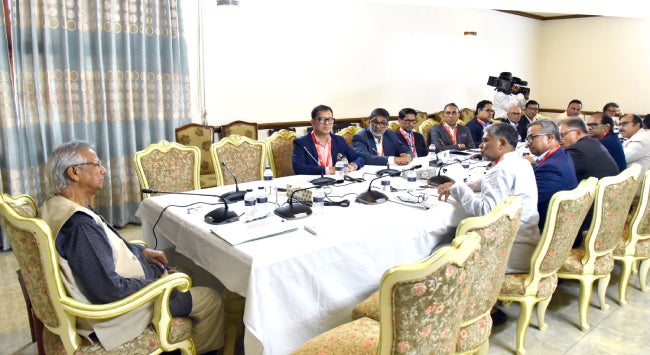
| Title: | Bangladesh’s Tentative Election Timeline and Reform Challenges |
| Author/s: | Imran Ahmed |
| Abstract: | In his recent national address, Bangladesh’s interim leader, Muhammad Yunus, outlined a tentative timeline for elections and emphasised the need for voter registration reforms to ensure credible and inclusive polls. This announcement reflects both the need and the scale of the many political and economic reform challenges ahead for Bangladesh, as well as the growing pressure on the interim government to build public confidence in the democratic process and appease the anxieties of political parties that elections remain on the near horizon. |
| Date: | 18 December 2024 |
| Read More |
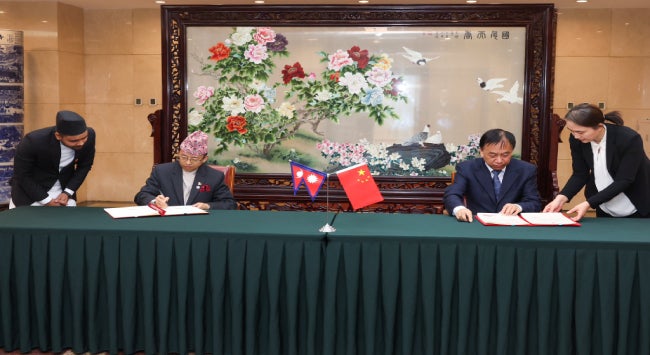
| Title: | Finally, BRI Projects to Advance in Nepal? |
| Author/s: | Puspa Sharma |
| Abstract: | Seven years after the signing of the memorandum of understanding on the Belt and Road Initiative, Nepal and China recently signed the Framework for Belt and Road Cooperation. The next step is to conclude project-specific agreements and get the projects off the ground. How the two countries interpret the ‘aid financing’ specified in the framework agreement will perhaps determine whether the projects will actually hit the ground. |
| Date: | 10 December 2024 |
| Read More |
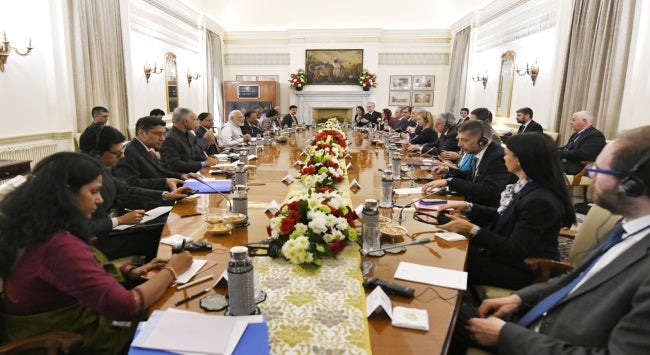
| Title: | India and Europe: The Rise of the Indo-Mediterranean |
| Author/s: | Chilamkuri Raja Mohan |
| Abstract: | As India intensifies its engagement with Europe, new sub-regions of the old continent are emerging as focal points. The Mediterranean region, particularly Italy, Spain and Greece, is gaining prominence in Indian diplomacy. The growing interconnections between India’s relations with the Mediterranean and the Middle East relations are forming a new Indo-Mediterranean region, driven by connectivity, commerce and geopolitics. |
| Date: | 6 December 2024 |
| Read More |
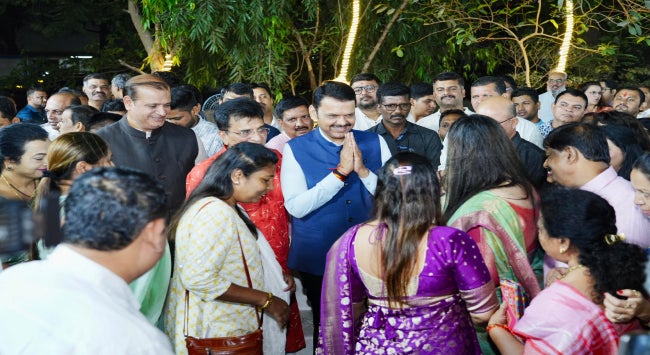
| Title: | Maharashtra Assembly Election: BJP-led Coalition in Landslide Victory |
| Author/s: | Ronojoy Sen |
| Abstract: | The Bharatiya Janata Party (BJP)-led Mahayuti coalition achieved a landslide victory in the recent Maharashtra Assembly election. The BJP, on its own, won 132 seats in the Maharashtra Assembly. The victory in Maharashtra, coming after the BJP’s win in Haryana, has successfully turned the electoral narrative in favour of the party after a relatively poor performance in the 2024 general election. |
| Date: | 3 December 2024 |
| Read More |
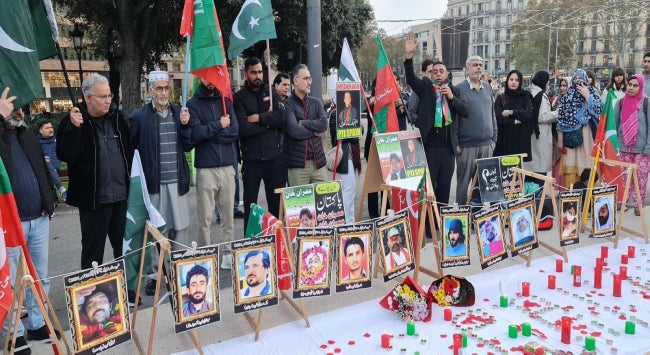
| Title: | From Dialogue to Deadlock: PTI’s Protest Movement and Pakistan’s Political Crisis |
| Author/s: | Imran Ahmed, Muhammad Saad Ul Haque |
| Abstract: | The escalating tensions between the ruling coalition government and the Pakistan Tehreek-e-Insaaf (PTI), marked by mutual distrust and increasingly polarised political tactics, have deepened Pakistan’s political instability. While the PTI launched its nationwide protest to challenge what it claims is a “stolen mandate”, the ruling coalition has responded with legal restrictions, mass arrests and forceful crackdowns. This entrenched conflict, compounded by opposition from other political groups and the chaotic execution of protests, has further fragmented Pakistan’s political landscape and left the nation in a state of heightened division and uncertainty. |
| Date: | 2 December 2024 |
| Read More |

| Title: | COP29 Deal on Climate Finance: Collective Action Needed from South Asia |
| Author/s: | Puspa Sharma |
| Abstract: | The outcome of the 29th Conference of the Parties to the United Nations Framework Convention on Climate Change has not been as expected. The developed countries’ pledge falls much short of the estimated financing requirements necessary to take climate action by the developing countries. India has rejected the deal, claiming it lacks consensus and the pledge being merely an “optical illusion”. Since it is a deal nevertheless, the South Asian countries need to work together to ensure its operationalisation and continue to press the developed countries for additional climate finance. |
| Date: | 28 November 2024 |
| Read More |
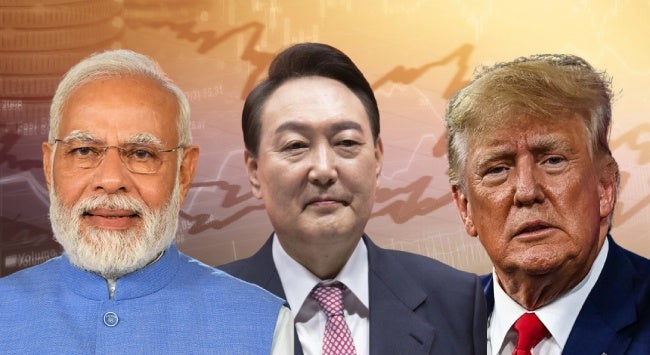
| Title: | India, Korea and the United States: Imperatives for a New Indo-Pacific Minilateral |
| Author/s: | Chilamkuri Raja Mohan |
| Abstract: | Any institutionalised cooperation between India, South Korea and the United States might appear an unlikely minilateral in the Indo-Pacific region. The absence of significant strategic engagement between India and South Korea in the past and their very different political orientations tend to reinforce scepticism about its prospects. However, a rapidly changing regional environment, marked by an assertive China and an uncertain America, generates new imperatives for trilateral strategic cooperation between New Delhi, Seoul and Washington. |
| Date: | 27 November 2024 |
| Read More |
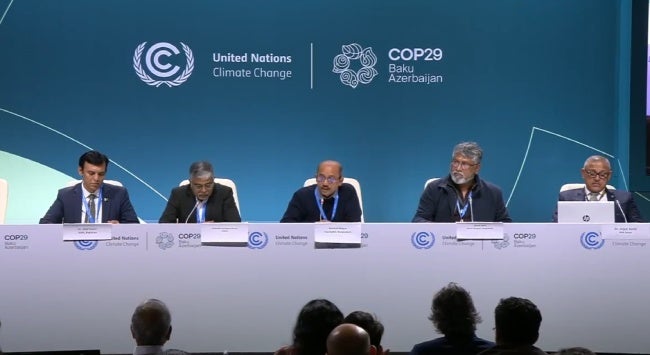
| Title: | COP29 Deal on Climate Finance: Disappointment for the Developing Nations |
| Author/s: | Vinod Rai |
| Abstract: | The United Nations Climate Change Conference – the annual series of Conferences of the Parties – ended recently in Baku, Azerbaijan. The summit declaration for climate finance activities of the developing countries has met with huge disappointment from the Global South. The wealthy nations are being blamed for having caused rampant historic pollution themselves but now offloading climate burdens onto the developing nations. The offer of US$1.3 trillion (S$1.781 trillion), of which the rich nations will contribute US$300 billion (S$411 billion) from varied sources, has been described as paltry. It is felt that the developing nations were forced to accept the deal which suffered from procedural flaws. |
| Date: | 27 November 2024 |
| Read More |
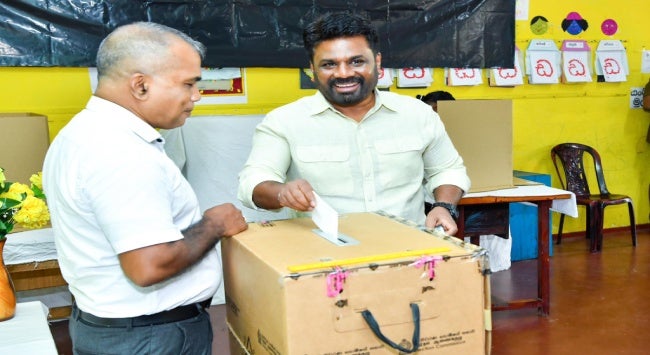
| Title: | Sri Lanka’s Parliamentary Election: The NPP Wins Historic Super Majority |
| Author/s: | Rajni Gamage |
| Abstract: | In Sri Lanka’s parliamentary election on 14 November 2024, the National People’s Power (NPP) won 159 seats of the 225-member parliament. The election follows the NPP's win in the presidential election in September this year. The NPP’s leader, Anura Kumara Dissanayake, secured 42 per cent of the vote to become the country’s ninth Executive President. This was a significant feat, as the NPP has been, at best, a third political force, not being able to secure more than three per cent of the vote in the previous election. The current victory was possible due to the angry, anti-establishment sentiment that the NPP successfully mobilised since the 2022 economic crisis. |
| Date: | 15 November 2024 |
| Read More |
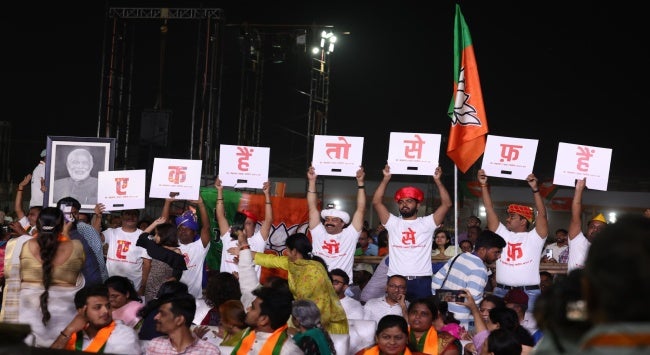
| Title: | Maharashtra Assembly Election: Battle of Two Coalitions |
| Author/s: | Ronojoy Sen |
| Abstract: | Maharashtra will see a single-phase election on 20 November 2024. The electoral battle for one of India’s largest and wealthiest states is between two opposing coalitions – the ruling Mahayuti, in which the Bharatiya Janata Party is the largest constituent, and the opposition Maha Vikas Aghadi comprising the Congress and the factions of two regional parties. |
| Date: | 15 November 2024 |
| Read More |

| Title: | Trump 2.0 Tariffs and India: The Good and the Not-so-Good |
| Author/s: | Amitendu Palit |
| Abstract: | The Trump 2.0 is likely to revive a bilateral trade deal with India with tariffs suiting the United States’ (US) interests. More tariffs on other American trade partners may bring unexpected benefits for India, along with unpleasant surprises. |
| Date: | 12 November 2024 |
| Read More |
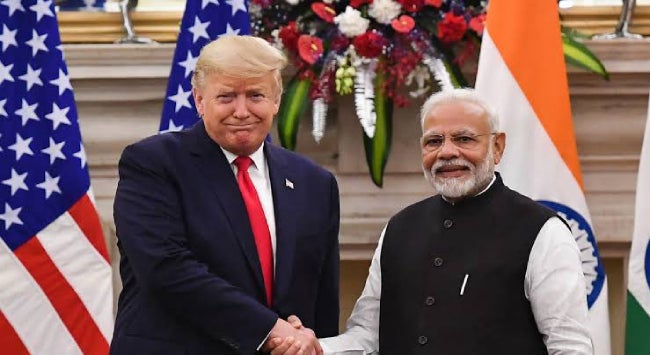
| Title: | Trump’s America and India: What’s Next? |
| Author/s: | Karthik Nachiappan |
| Abstract: | Donald Trump’s decisive victory in the United States’ presidential election ushers opportunities and constraints for Indian diplomacy in the near term. |
| Date: | 7 November 2024 |
| Read More |
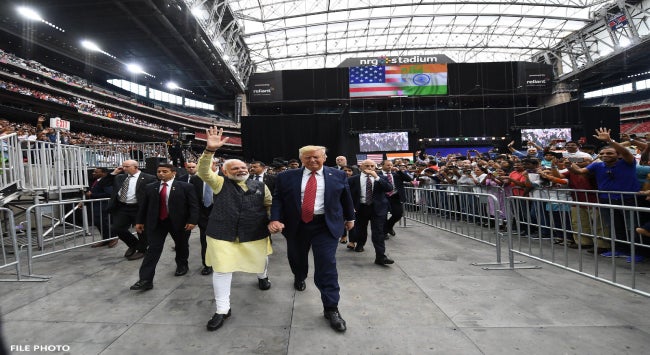
| Title: | President Trump’s Second Term: India-United States Ties |
| Author/s: | Chilamkuri Raja Mohan |
| Abstract: | Donald Trump’s historic comeback as United States (US) president for a second term presents both new opportunities and significant challenges for India. As the US adopts a less ideological and more transactional foreign policy under Trump, India must adapt to further advance its partnership in the coming years with Washington which is now New Delhi’s most important. This brief analyses the implications of Trump’s victory and its historic significance, and outlines key areas of concern for India in navigating this new era of US-India relations. |
| Date: | 7 November 2024 |
| Read More |
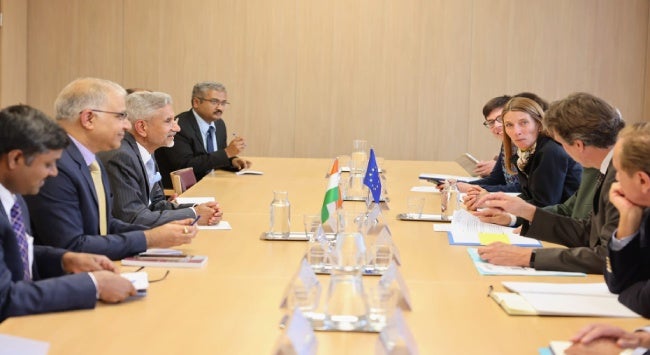
| Title: | EU-India Trade and Technology Council: The Path Ahead |
| Author/s: | Karthik Nachiappan |
| Abstract: | The time has come for the European Union-India Trade and Technology Council to emphasise practical cooperation. |
| Date: | 5 November 2024 |
| Read More |
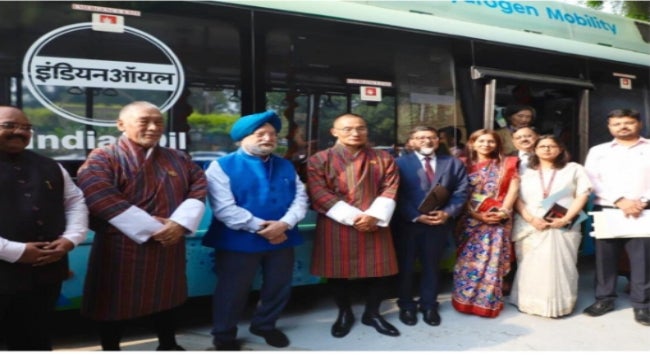
| Title: | The Green Hydrogen Landscape in South Asia |
| Author/s: | Saeeduddin Faridi, Puspa Sharma |
| Abstract: | South Asia is not isolated from the rapidly growing global interest in green hydrogen. The pursuit of decarbonisation and energy security has drawn countries like India, Nepal, Pakistan and Sri Lanka to design policy roadmaps and undertake projects to develop green hydrogen ecosystems and assess their feasibility. In moving forward, it is crucial to understand the potential challenges developing countries in South Asia may face. |
| Date: | 24 October 2024 |
| Read More |
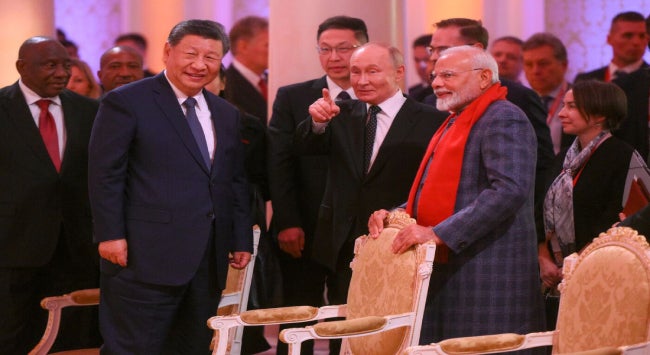
| Title: | Competitive-Cooperative Cycles: Modi Government’s Policy Towards China |
| Author/s: | Bian sai |
| Abstract: | Indian Prime Minister Narendra Modi’s China policy over the past decade reveals a cyclical dynamic characterised by alternating phases of competition-cooperation(coopetition). This pattern highlights the significant influence of the interplay between the “positive” aspects of economic cooperation and the “negative” aspects arising from China-India border conflicts. The underlying cause of this oscillation lies in the shifts in strategic perception, which encompass both an evolving understanding of the strategic environment and India’s own role and opportunities. |
| Date: | 23 October 2024 |
| Read More |
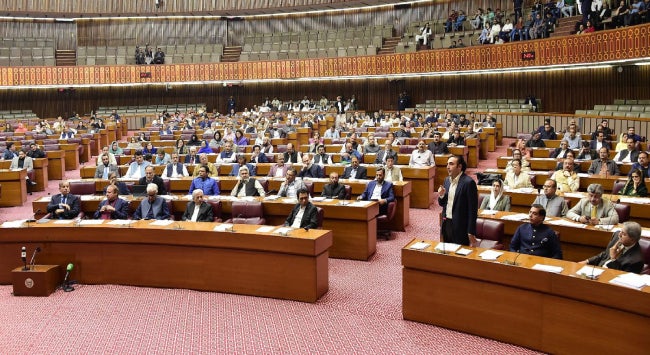
| Title: | Pakistan’s Constitutional Reform Package: Judicial Independence Under Threat? |
| Author/s: | Imran Ahmed, Muhammad Saad Ul Haque |
| Abstract: | Over the past month, the current coalition government in Pakistan has been attempting to garner support for a constitutional amendment bill to reform the country’s judiciary and court structure. The bill was finally passed on 21 October 2024. Yet, while the government argues these changes will alleviate case backlogs, critics warn they undermine judicial independence and the separation of powers. |
| Date: | 23 October 2024 |
| Read More |
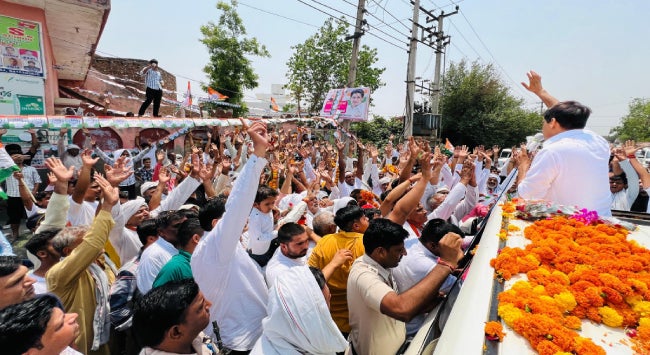
| Title: | J&K and Haryana Assembly Elections: An Analysis of the Verdicts |
| Author/s: | Ronojoy Sen |
| Abstract: | The results for the Assembly elections in Jammu and Kashmir (J&K) and Haryana were not correctly anticipated by exit polls and surveys. The National Conference-Congress alliance won fairly comfortably in J&K while the incumbent Bharatiya Janata Party received a clear majority in Haryana. |
| Date: | 18 October 2024 |
| Read More |
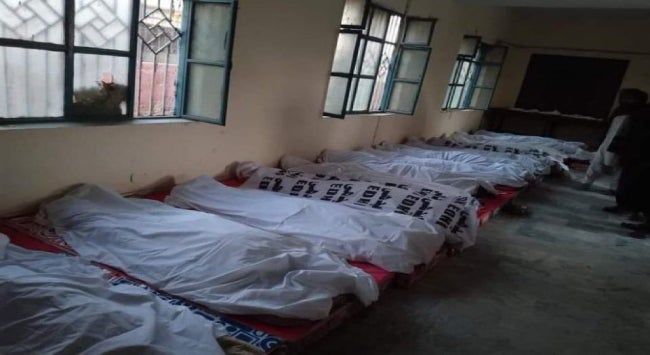
| Title: | The CPEC and its Discontents: Security, Unrest and the Human Cost of Development in Pakistan’s Balochistan |
| Author/s: | Imran Ahmed |
| Abstract: | The unrest in and emanating from Balochistan in Pakistan reveals the limitations of a security-centric approach to managing development projects. Lessons from this context emphasise the need for inclusive governance and active local participation to ensure that development initiatives like the China-Pakistan Economic Corridor genuinely benefit the populations they intend to serve. Balochistan’s conflicts reflect the broader challenges that arise when large-scale foreign investments refract existing political and social tensions in the host country. |
| Date: | 17 October 2024 |
| Read More |
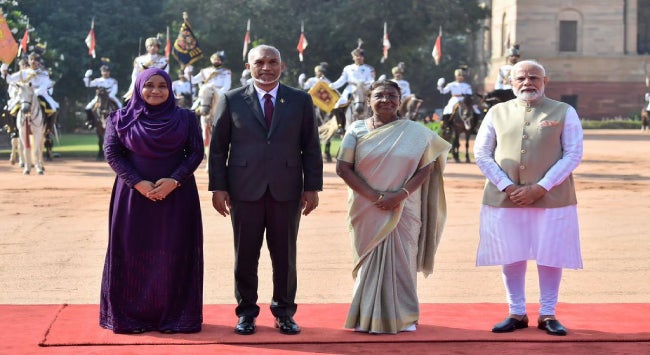
| Title: | Muizzu’s Visit to India: An Attempt to Reset Ties |
| Author/s: | Amit Ranjan |
| Abstract: | Economic challenges in the country have forced Maldivian President Mohamed Muizzu to reset ties with New Delhi. For strategic reasons, India did not disappoint him. |
| Date: | 15 October 2024 |
| Read More |
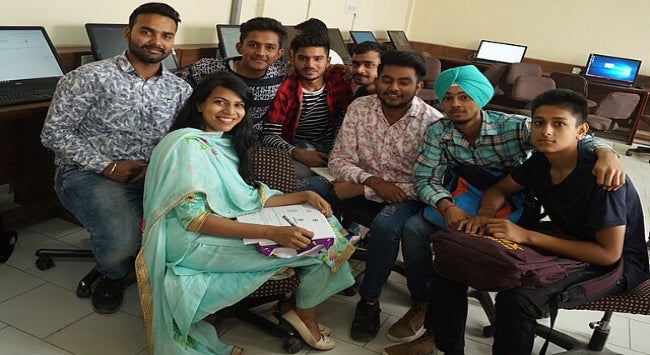
| Title: | India Launches the PM Internship Scheme: Enhancing Youth Employability |
| Author/s: | Vinod Rai |
| Abstract: | With the objective of providing opportunities to youth in the age group of 21 to 24 years who possess basic graduate degrees or industrial training institute training, the Indian government has launched the Prime Minister Internship Scheme designed to benefit 10 million youth over five years. Interns, over a 12-month period, will acquire practical skills by working in real-world business settings. The stipend provided will help the interns meet their basic expenses during the internship. This experience will enhance their employability, paving the way for future job opportunities. |
| Date: | 14 October 2024 |
| Read More |
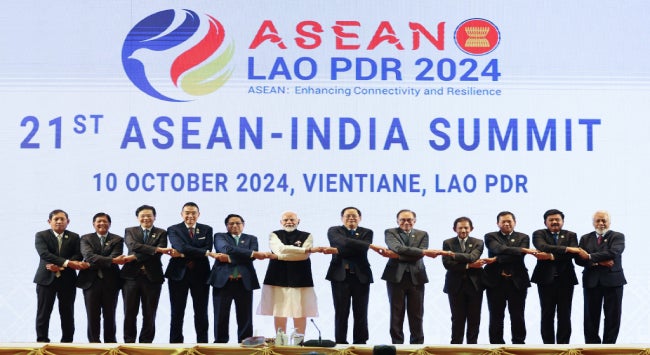
| Title: | India and ASEAN in a Changing World |
| Author/s: | Chilamkuri Raja Mohan |
| Abstract: | As India marks the 30th anniversary of the ‘Look East’ policy and the 10th anniversary of Prime Minister Narendra Modi’s ‘Act East’ policy, there is much to celebrate as well as ponder upon. Although there has been all round progress in the relations between India and the Association of Southeast Asian Nations (ASEAN), the relationship is well below its true potential. Deepening trade relations and expanding security partnerships remain urgent tasks in India-ASEAN relations in a rapidly changing global context. |
| Date: | 14 October 2024 |
| Read More |
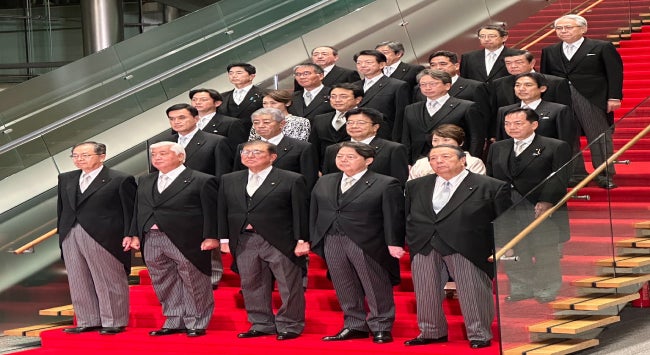
| Title: | Meet Prime Minister Shigeru Ishiba: Challenges Ahead for Japan |
| Author/s: | Purnendra Jain |
| Abstract: | Japan’s newly minted prime minister, Shigeru Ishiba, faces enormous domestic and foreign policy challenges. Coming from a different tradition from his immediate predecessors, Ishiba’s ability to manage these challenges before him will determine his political longevity in a country where prime ministers change frequently. |
| Date: | 14 October 2024 |
| Read More |
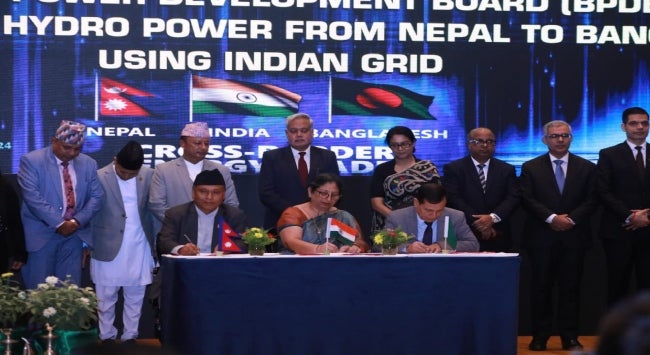
| Title: | Tripartite Pact on Electricity Trade: Climate Challenges Remain |
| Author/s: | Puspa Sharma |
| Abstract: | A tripartite agreement on Nepal’s electricity exports to a third country, Bangladesh, via India was signed last week in Kathmandu. This long-awaited development marks a significant milestone in advancing sub-regional cooperation on renewable energy within South Asia. However, numerous challenges remain ahead, particularly as climate change-induced disasters increasingly impact hydropower generation and transmission. |
| Date: | 8 October 2024 |
| Read More |
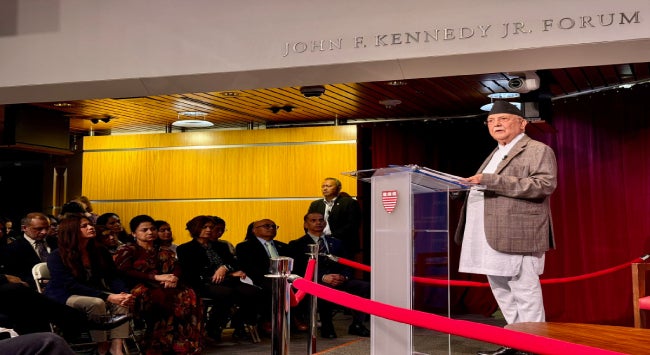
| Title: | Highlights of Oli’s New York Visit: Climate Justice and Meeting with Modi |
| Author/s: | Puspa Sharma |
| Abstract: | Nepal contributes very little to climate change, but it is one of the countries most affected and vulnerable to climate impacts. In the context that global actions on climate justice have not been too forthcoming, it is essential that countries such as Nepal raise demands for climate justice clearly and consistently. Nepal’s Prime Minister K P Sharma Oli did just that in New York recently. His bilateral meeting with India’s Prime Minister is another important outcome of his visit, given the urgency of resolving several outstanding issues between India and Nepal. |
| Date: | 30 September 2024 |
| Read More |

| Title: | Sri Lanka Elects Dissanayake: Challenging Times for the New President |
| Author/s: | Rajni Gamage |
| Abstract: | On 22 September 2024, leader of the National People’s Power, Anura Kumara Dissanayake, emerged the winner of the presidential election in Sri Lanka. The new president-elect faces a number of challenges as the country continues to be in an economically precarious situation following the 2022 economic crisis. |
| Date: | 26 September 2024 |
| Read More |
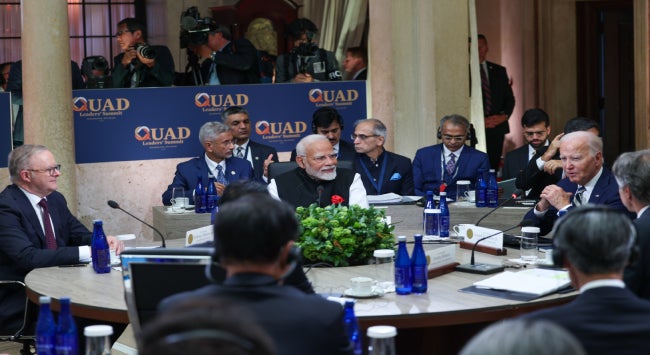
| Title: | The Wilmington Summit: A Consolidation of the Quad |
| Author/s: | Chilamkuri Raja Mohan |
| Abstract: | The sixth Quadrilateral Security Dialogue (Quad) summit held at Wilmington, Delaware, Joe Biden’s hometown, is a celebration of the outgoing United States (US) president’s leadership in transforming the forum into an important part of Asian geopolitical architecture. The Quad’s wide-ranging agreements, though not spectacular, have helped turn it into a valuable mechanism to deliver public goods in the Indo-Pacific. |
| Date: | 23 September 2024 |
| Read More |
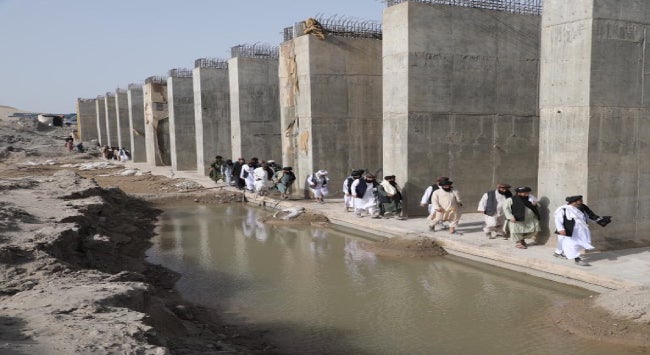
| Title: | The Qosh Tepa Canal: Source of Possible Regional Tension |
| Author/s: | Amit Ranjan |
| Abstract: | The Qosh Tepa Canal has the ‘potential’ of affecting water flow in Uzbekistan and Turkmenistan, and impacting agricultural production and related economic activities in the respective countries. Consequently, tensions over shared water and hydro projects may escalate in the region. |
| Date: | 19 September 2024 |
| Read More |
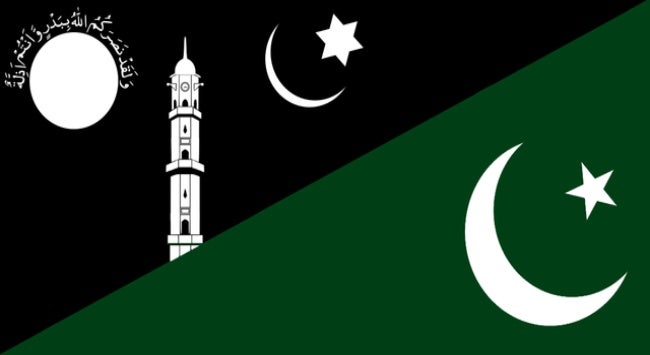
| Title: | Religious Freedom Undermined: The Sani Case and Pakistan’s Legal Crisis |
| Author/s: | Imran Ahmed |
| Abstract: | The Supreme Court of Pakistan’s recent reversal in the Mubarak Sani case, where Sani faced charges under some of Pakistan’s notorious blasphemy laws and for distributing an Ahmadi religious text, threatens religious freedom and minority rights in the country. The case reveals how religious and political pressures are influencing Pakistan’s judiciary and weakening its independence. |
| Date: | 16 September 2024 |
| Read More |
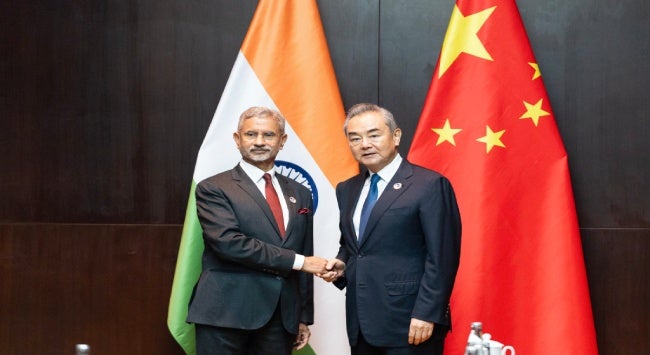
| Title: | India-China Talks: Inching Towards Military Disengagement? |
| Author/s: | Chilamkuri Raja Mohan |
| Abstract: | Talks between top Indian and Chinese leaders during the last two months have raised expectations for easing the military stand-off in eastern Ladakh and resuming the bilateral engagement on political and economic issues suspended since the Galwan clashes of June 2020. Yet, there are remaining wrinkles to be sorted out; if they are settled quickly, Indian Prime Minister Narendra Modi and Chinese leader Xi Jinping could unveil a breakthrough when they meet on the margins of several summits in the weeks ahead. |
| Date: | 16 September 2024 |
| Read More |
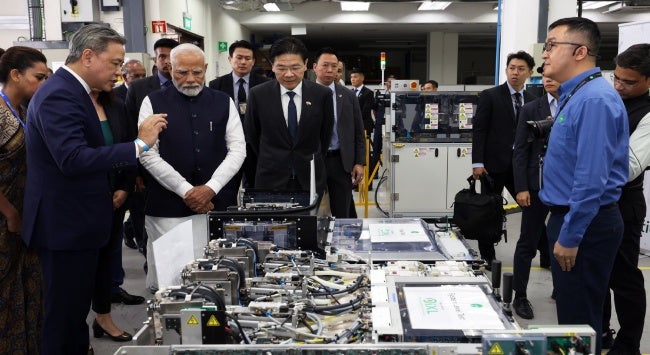
| Title: | India-Singapore Comprehensive Strategic Partnership: Focus on Semiconductors |
| Author/s: | Amitendu Palit, Mriganika Singh Tanwar |
| Abstract: | Cooperation in semiconductors is prominent in India and Singapore’s decision to elevate their ties to a comprehensive strategic partnership. The engagement connects to India’s efforts to become a global semiconductor hub and make regional semiconductor supply chains more resilient. |
| Date: | 12 September 2024 |
| Read More |
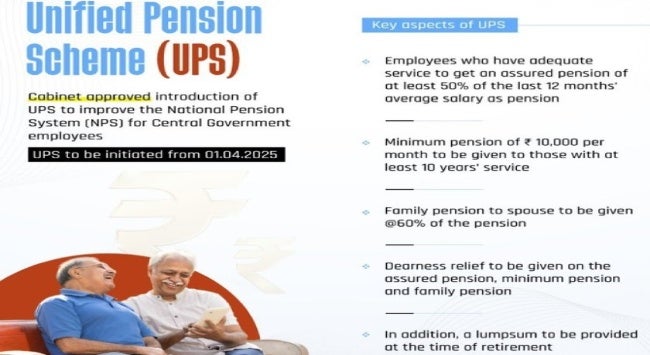
| Title: | The Unified Pension Scheme: A Strategic Rethink? |
| Author/s: | Vinod Rai |
| Abstract: | Political compulsions have compelled the Indian central government to rethink the New Pension Scheme which was adopted in 2004. With the intent of creating a corpus fund to meet the pension liabilities, a defined contribution pension scheme, as against the earlier defined benefit scheme, was set up by the Indian government. However, this scheme ran into rough weather on grounds of leaving pensioners at the mercy of market vagaries. The government has now announced a new Unified Pension Scheme which combines an assured element too. |
| Date: | 6 September 2024 |
| Read More |
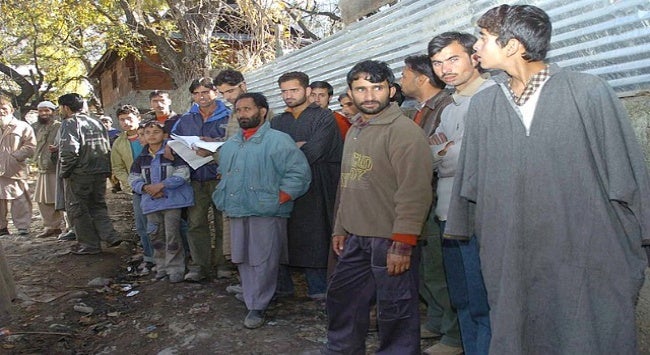
| Title: | Jammu and Kashmir Goes to the Polls: First Assembly Election in 10 Years |
| Author/s: | Ronojoy Sen |
| Abstract: | Jammu and Kashmir (J&K) will see a three-phase election beginning 18 September 2024 with the counting of votes on 4 October 2024, along with those of Haryana, which will go to the polls on 1 October 2024. This will be the first Assembly polls in J&K since the abrogation in 2019 of Article 370 of the Indian Constitution and the bifurcation of the state into two Union territories. |
| Date: | 29 August 2024 |
| Read More |
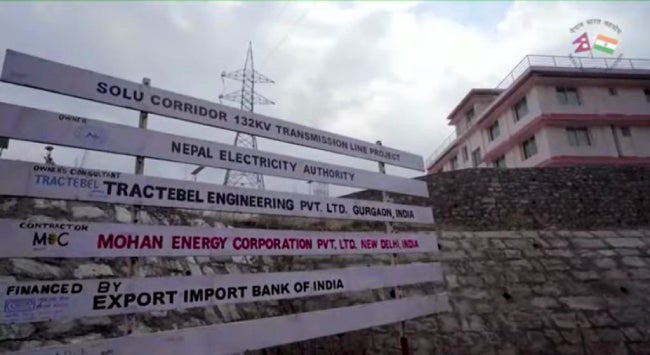
| Title: | Nepal’s Impressive Progress in the Hydroelectricity Sector |
| Author/s: | Puspa Sharma |
| Abstract: | Nepal has been making impressive progress in the generation, transmission and distribution of hydroelectricity in the domestic market as well as in its exports. However, a significantly large part of its hydropower potential remains to be exploited. If Nepal can attract the massive investments required to fully develop its hydropower sector, address the environmental impacts of hydropower projects, and plan and implement measures to minimise the risks of natural disasters to such projects, the country can experience a huge boost in its development endeavours. |
| Date: | 28 August 2024 |
| Read More |
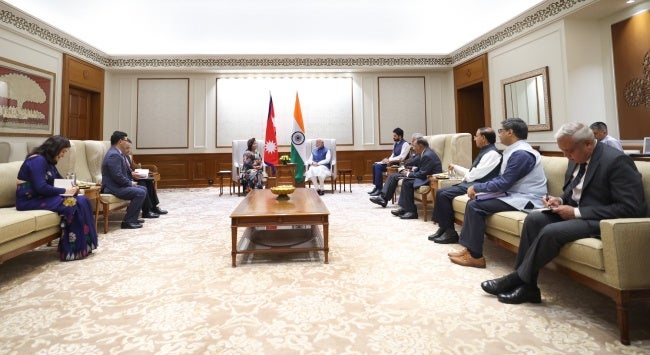
| Title: | Arzu Rana Deuba’s Visit to India: No Guarantee of Smooth Bilateral Relations |
| Author/s: | Amit Ranjan |
| Abstract: | Nepal’s Foreign Minister Arzu Rana Deuba called her recent first official visit to India a success. However, this does not necessarily point to a lasting cordial relationship between the two neighbours. The composition of the new government in Kathmandu and the coalition is such that Prime Minister K P Sharma Oli will not be entirely have a free hand in making major foreign policy-related decisions. |
| Date: | 23 August 2024 |
| Read More |
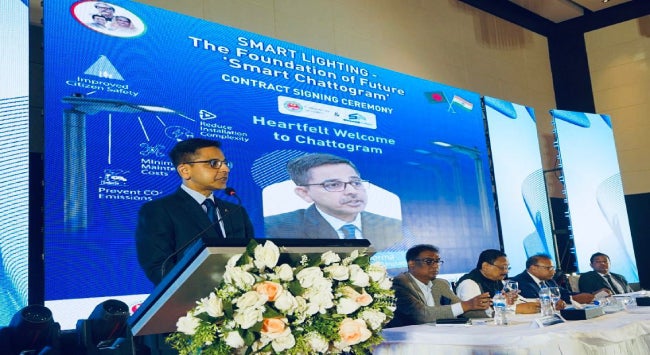
| Title: | Bangladesh Crisis: Implications for India-Bangladesh Economic Ties |
| Author/s: | Amitendu Palit |
| Abstract: | Bangladesh’s Prime Minister Hasina’s resignation has plunged the country into a governance crisis. There are concerns in India over its implications for economic ties with Bangladesh. The concerns range across prospects for bilateral trade, Indian investments in Bangladesh and people-to-people connectivity. |
| Date: | 13 August 2024 |
| Read More |
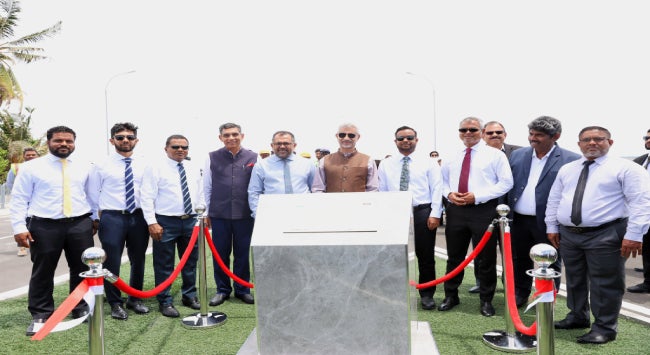
| Title: | Indian Foreign Minister’s Visit to the Maldives |
| Author/s: | Amit Ranjan |
| Abstract: | During the visit to Malé from 9 to 11 August 2024, India’s External Affairs Minister S Jaishankar reiterated India’s stand on how significant the archipelago nation is to New Delhi. However, it is too early to say that the India-Maldives relations will attain a similar height as they were under the presidency of Ibrahim Mohamad Solih (2018-2023). |
| Date: | 13 August 2024 |
| Read More |
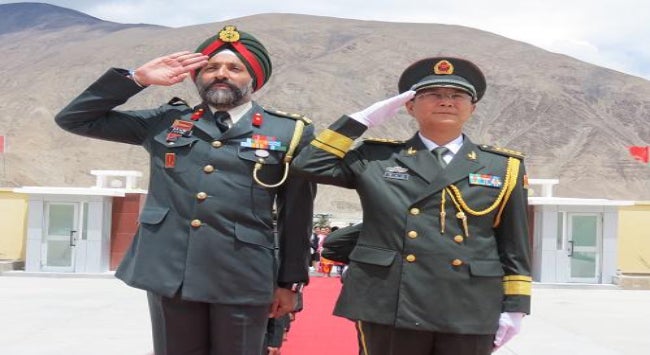
| Title: | The Sino-Indian Border: The Indian Army and the Balance of Forces |
| Author/s: | Yogesh Joshi |
| Abstract: | How is the Indian Army coping with the challenge thrown by China in the post-Galwan period? This brief argues that the Indian Army is trying to bridge the gap in the balance of forces, balance of logistics and balance of intelligence and surveillance capabilities. Yet, it also needs to augment its balance of resolve in confronting the Peoples Liberation Army along the Sino-Indian border. |
| Date: | 13 August 2024 |
| Read More |
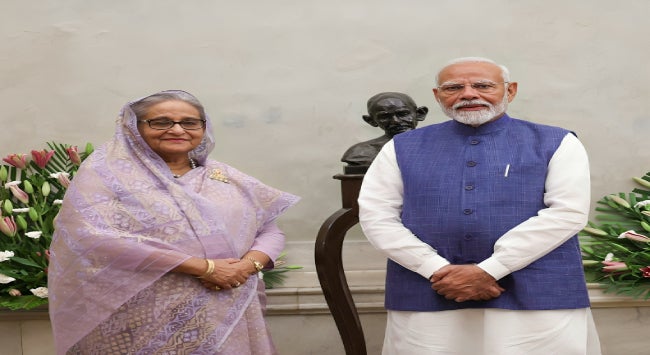
| Title: | India’s Options in Post-Hasina Bangladesh |
| Author/s: | Amit Ranjan |
| Abstract: | On 5 August 2024, Bangladesh’s Prime Minister Sheikh Hasina resigned and fled the country in the face of severe protests and violence. Her exit from Bangladesh hampers India’s bilateral ties with the country and may also have an impact on regional political architecture. To deal with the political challenge in Bangladesh, India must wait before deciding on the nature of its engagement with Dhaka. |
| Date: | 12 August 2024 |
| Read More |
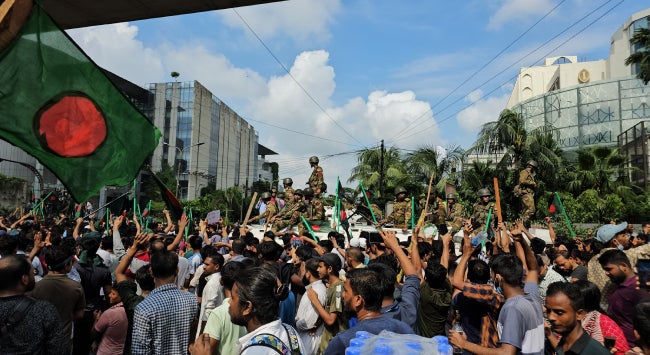
| Title: | From Protest to Revolution: A New Era for Bangladesh? |
| Author/s: | Imran Ahmed |
| Abstract: | In July 2024, student protests against a contentious reservation policy evolved into a broader movement demanding the ouster of Prime Minister Sheikh Hasina. The protests and the government’s brutal response, which resulted in several hundred deaths, highlighted a deepening divide between the state and the public. With Hasina having fled Bangladesh on 5 August 2024, the challenges of rebuilding trust and legitimacy in the government and institutions will be crucial as the country seeks to restore functional democratic processes. |
| Date: | 7 August 2024 |
| Read More |
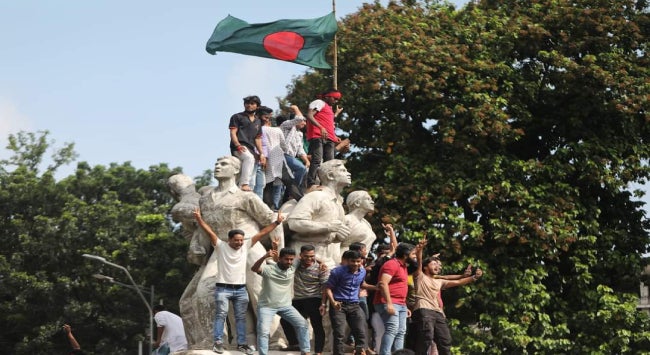
| Title: | A Country in Turmoil: Political Violence in Bangladesh |
| Author/s: | Amit Ranjan |
| Abstract: | The political violence in Bangladesh cannot be read in isolation. It is the product of years of political repression by the Sheikh Hasina government. With Hasina fleeing the country and the Bangladesh Army likely to form an interim government, it will be interesting to see how the current political landscape unfolds. |
| Date: | 6 August 2024 |
| Read More |
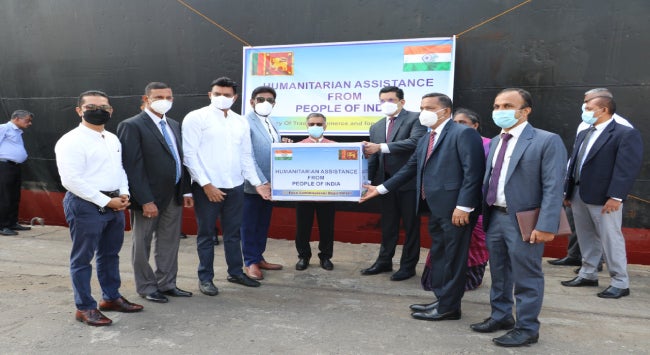
| Title: | Indian Budget FY2024/25: Aid to the Neighbours |
| Author/s: | Amit Ranjan |
| Abstract: | In the 2024/25 Indian budget, New Delhi has increased aid to some of its neighbouring countries while reducing for others. India maintains that its policy towards its neighbours, including aid, is largely non-reciprocal. |
| Date: | 6 August 2024 |
| Read More |
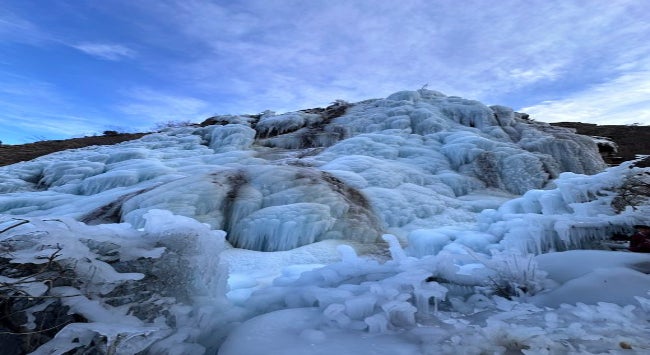
| Title: | Climate Crisis in the Highlands: Impact on Pakistan’s Mountainous Regions |
| Author/s: | Imran Ahmed, Charukeshi Karikalan |
| Abstract: | Pakistan’s mountainous regions, crucial for water supply and environmental stability, face accelerated glacier melting and increased risk of glacial lake outburst floods. Addressing these issues is critical for Pakistan to manage climate impacts effectively and ensure climate justice for its vulnerable populations. |
| Date: | 6 August 2024 |
| Read More |
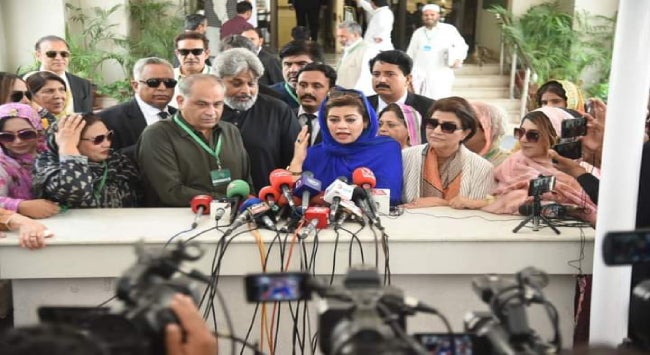
| Title: | The Supreme Court Judgement on PTI’s Reserved Seats Case |
| Author/s: | Imran Ahmed, Muhammad Saad Ul Haque |
| Abstract: | Since the February 2024 general elections, the Pakistan Tehreek-e-Insaaf (PTI) has been striving to uphold and protect its political legitimacy and representation. Among the many issues it faced, the matter of reserved seats was particularly crucial, with the potential to significantly shift the PTI’s political influence. The Supreme Court of Pakistan recently ruled in favour of the PTI, resolving months of unresolved contentions. |
| Date: | 2 August 2024 |
| Read More |
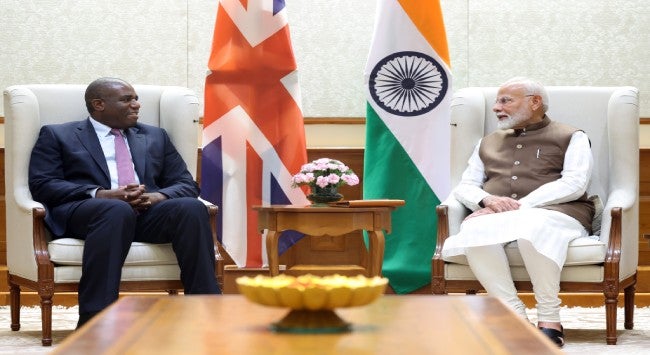
| Title: | Exploring New Frontiers: UK-India Technology Security Initiative |
| Author/s: | Karthik Nachiappan, Mriganika Singh Tanwar |
| Abstract: | The United Kingdom’s Foreign Secretary David Lammy’s maiden visit to New Delhi in late July 2024 culminated in the launch of a new technology partnership – the Technology Security Initiative to leverage and catalyse technology cooperation with India. |
| Date: | 1 August 2024 |
| Read More |

| Title: | Union Budget 2024: The NDA’s First Budget in its Third Term |
| Author/s: | Vinod Rai |
| Abstract: | The National Democratic Alliance government presented the first budget of its third term in July 2024. The budget did not contain any major policy initiatives heralding the long-term policy direction of the government. However, it did reveal the intent to follow a path of fiscal consolidation, boost infrastructure and incentivise formal employment in the private sector. It has also proposed the digitisation of land records in the rural areas. |
| Date: | 31 July 2024 |
| Read More |
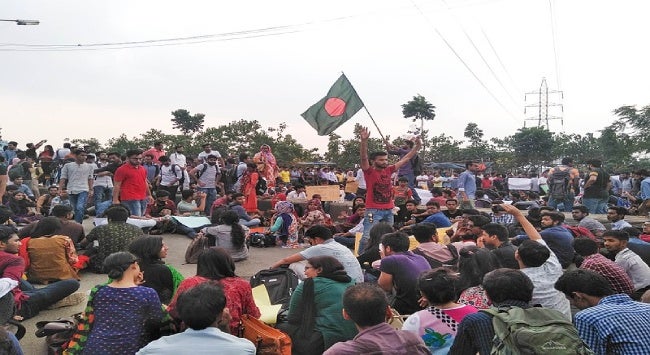
| Title: | Quota Protests in Bangladesh: Causes and Consequences |
| Author/s: | Tariq Karim |
| Abstract: | The outbreak of student protests in Bangladesh last month over the abolition of the quota system for job recruitment in the public sector turned ugly with deadly clashes between the students and the security personnel. This paper traces the causes of the protests and the consequences for Prime Minister Sheikh Hasina’s government. |
| Date: | 27 July 2024 |
| Read More |
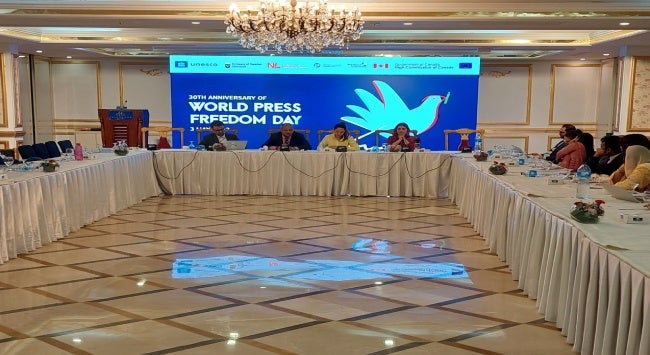
| Title: | Fatal Silence: Press Freedom and Perilous Journalism in Pakistan |
| Author/s: | Imran Ahmed, Charukeshi Karikalan |
| Abstract: | In the 2024 World Press Freedom Index, Reporters Without Borders ranked Pakistan at 152 out of 180 countries, underscoring a severe decline in press freedom. The government’s heightened repression of online dissent – marked by frequent internet shutdowns, throttling of online access and social media suspensions – has significantly curtailed free expression. This decline is compounded by a troubling rise in journalist violence, with seven reporters killed in the first half of 2024, setting an unprecedented record. In response, non-governmental organisations and international organisations have condemned these developments and launched initiatives to enhance press freedom and journalist safety. Despite these efforts, the environment for journalists remains perilous, reflecting a broader trend of shrinking media space amid ongoing political and social turmoil. |
| Date: | 25 July 2024 |
| Read More |
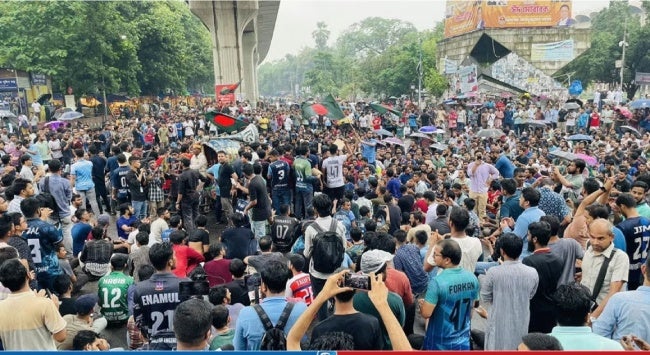
| Title: | Student Protests in Bangladesh: Implications for the Hasina Government |
| Author/s: | Mohammad Masudur Rahman |
| Abstract: | Bangladesh is currently grappling with widespread student protests, calling for the abolition of the quota system for public sector job recruitment. These protests have led to massive violence, outcry and attention to fairness in the job market and employment sector, and its governance. While the Sheikh Hasina government has taken steps to address the protesters’ demands, the violent response has led to the deaths of over a hundred students. The political violence, oppression and instability may persist, potentially causing significant long-term effects on trust, policy reform, political stability and electoral outcomes. Addressing these challenges requires a careful balance of responsiveness, transparency and inclusivity to ensure that the government can effectively navigate the complexities of public sentiment and maintain its legitimacy. |
| Date: | 24 July 2024 |
| Read More |
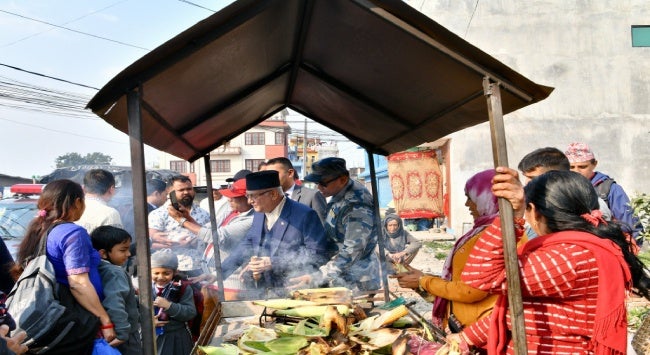
| Title: | Nepal’s Political and Economic Challenges |
| Author/s: | Puspa Sharma |
| Abstract: | Nepal has a new coalition government in place, formed with the promise of providing political stability and reviving economic activities. Keeping these promises are challenging but necessary to instill hope in the Nepali people that their future is not doomed. |
| Date: | 22 July 2024 |
| Read More |
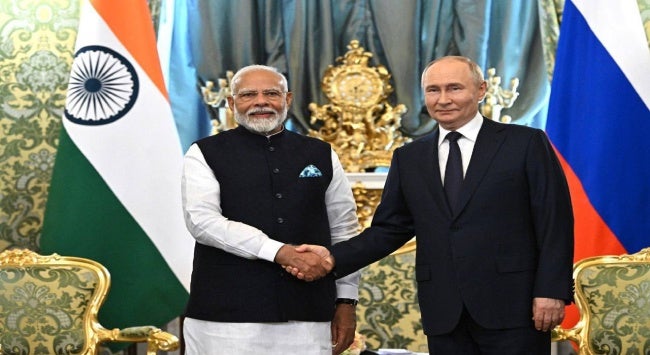
| Title: | Modi in Moscow: What Gives? |
| Author/s: | Karthik Nachiappan |
| Abstract: | Indian Prime Minister Narendra Modi’s recent visit to Russia was an opportunity for India to signal that Russia is a key partner and the two counties have a longstanding relationship that transcends crises and challenges. |
| Date: | 18 July 2024 |
| Read More |
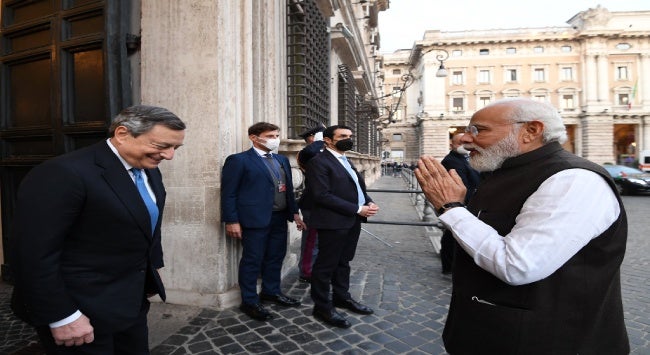
| Title: | India’s Strategic Dance with Europe Amidst Geopolitical Shifts |
| Author/s: | Yogesh Joshi, Paarth Endlaw |
| Abstract: | Indian Prime Minister Narendra Modi’s third-term re-election began with a diplomatic visit to the 50th G7 summit in Italy from 13 to 15 June 2024, underscoring growing relations with the West. In recent years, India’s interactions with Europe have intensified through regular participation in forums like the G7 and G20, as well as increased bilateral engagements with key European nations such as France, Italy and Germany. This commitment was further highlighted by India’s participation in the Ukraine Peace Summit in Switzerland on 15 and 16 June 2024. Although India and several Global South nations, including Indonesia and Thailand, refrained from signing the joint communique, India’s active presence signalled its role as a Vishwa-Mitra (Universal Friend). However, are these shifts indicative of the fundamental changes in India-Europe ties, or merely tactical cooperation? |
| Date: | 17 July 2024 |
| Read More |
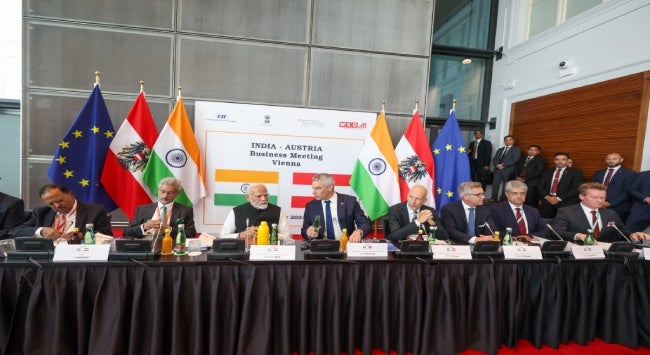
| Title: | Modi’s Foreign Policy 3.0 |
| Author/s: | Karthik Nachiappan |
| Abstract: | India’s foreign policy will not veer much with the Bharatiya Janata Party’s recent victory in India’s general elections. Continuity, not change, will feature. |
| Date: | 16 July 2024 |
| Read More |
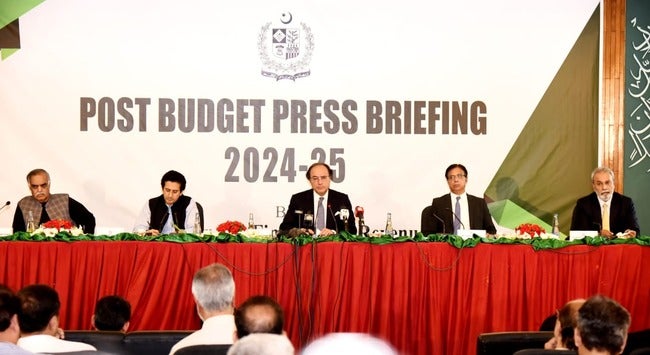
| Title: | Rs18.9 Trillion Budget Announced: Pakistan’s Economic Dilemma |
| Author/s: | Imran Ahmed, Charukeshi Karikalan |
| Abstract: | On 28 June 2024, Pakistan’s Parliament passed an 18.9 trillion Rupees (S$91.3 billion) budget for the fiscal year 2024-25, setting a tax revenue target that is up an estimated 40 per cent from the preceding year. While seeking to strengthen housing and community amenities, social protection and, foremost, the economy, the budget has been met with sharp criticism from the opposition for imposing tax burden on citizens and pandering to the International Monetary Fund’s guidelines. |
| Date: | 12 July 2024 |
| Read More |
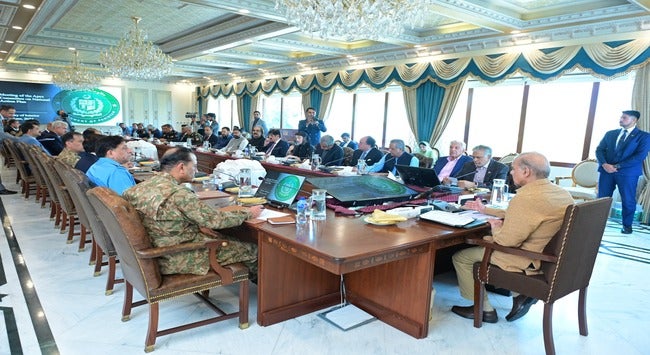
| Title: | Operation Azm-i-Istehkam Launched: Pakistan Combats Terrorism |
| Author/s: | Imran Ahmed, Charukeshi Karikalan |
| Abstract: | On 22 June 2024, the Pakistan government launched Operation Azm-i-Istehkam (Resolve for Stability), a counterterrorism initiative aimed at addressing urgent security concerns through the continuation of intelligence-based operations, alongside regional cooperation and socioeconomic interventions. While the initiative responds to a rise in terror incidents and violence and to address cross-border terrorism as well as to reassure international partners, it has, however, been met with opposition due to concerns over transparency. |
| Date: | 5 July 2024 |
| Read More |
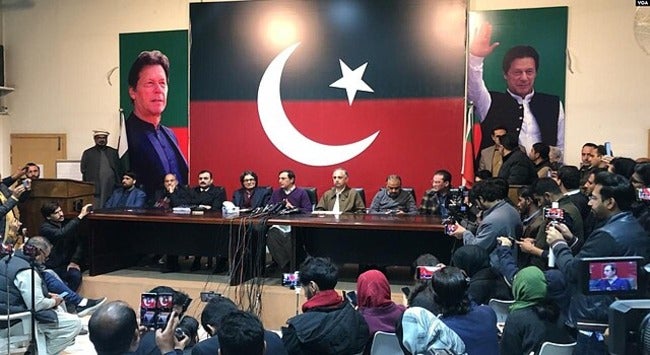
| Title: | Uncertainty and Dissent: Leadership Crisis in the PTI |
| Author/s: | Imran Ahmed, Muhammad Saad Ul Haque |
| Abstract: | The Pakistan-Tehreek-e-Insaaf (PTI) at present faces significant internal strife and external challenges, including jailed leaders, legal hurdles, political harassment, a fraught partnership with the Sunni Ittehad Council and mounting internal dissent. This has raised concerns about its unity, its effectiveness as an opposition force and its overall stability. Despite the passing of several months since the turbulent election period, the future of the PTI and its leadership remains uncertain. Power struggles among senior PTI leaders exacerbate leadership instability and risk eroding the PTI’s public image and political standing. |
| Date: | 28 June 2024 |
| Read More |
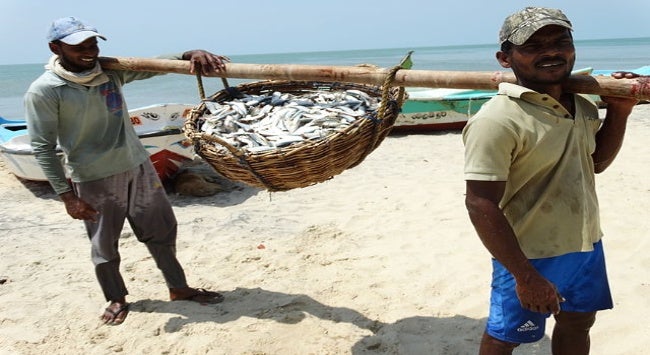
| Title: | Sri Lanka’s Economic Reforms in 2024: Three Bills Presented in Parliament |
| Author/s: | Rajni Gamage |
| Abstract: | In May 2024, the Sri Lankan government presented three economic reforms-related bills to the Parliament – the Economic Transformation Bill, the Public Debt Management Bill and the Public Financial Management Bill. These bills are aimed to stabilise the economy and prevent another debt default crisis. |
| Date: | 27 June 2024 |
| Read More |
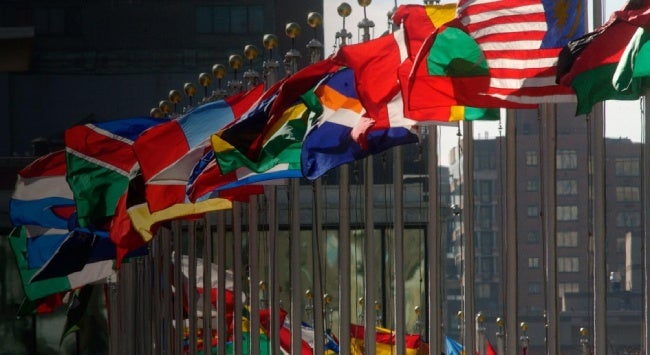
| Title: | Conference of the Parties 29: Focus on Climate Finance Challenges |
| Author/s: | Vinod Rai |
| Abstract: | The next Conference of the Parties (COP) meeting on Climate Change is scheduled to be held in November 2024 in Baku, Azerbaijan. The Paris conference in 2015 formalised the agreement that the developed countries will provide US$100 billion (S$135 billion) every year till 2025 for climate action in the developing countries. While the Organisation for Economic Co-operation and Development estimates indicate that this amount has been raised in 2022, there are contentions about the nature of funds raised and whether the developing nations will actually benefit from it. The next COP meeting is expected to provide some solutions. |
| Date: | 26 June 2024 |
| Read More |
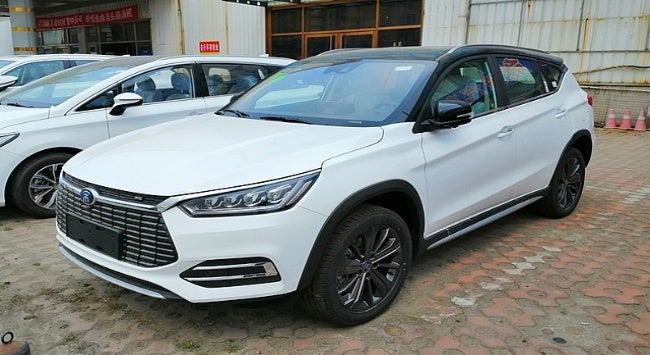
| Title: | Trade War in Electric Vehicles: India an Unexpected Winner? |
| Author/s: | Amitendu Palit |
| Abstract: | New United States and European Union tariffs on Chinese electric vehicles (EVs) will lead to the relocation of some EV manufacturers from China. India might be a beneficiary of the relocation. |
| Date: | 24 June 2024 |
| Read More |
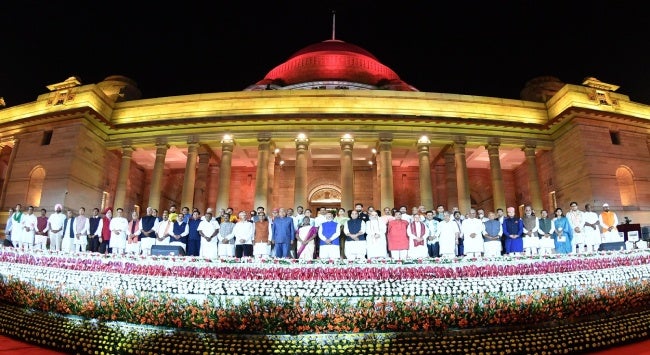
| Title: | Indian Council of Ministers 2024: Adequate Representation for Coalition Partners |
| Author/s: | Vinod Rai |
| Abstract: | The significant characteristic of the Union Cabinet of the third National Democratic Alliance is the presence of a number of ministers representing the allies of the Bharatiya Janata Party. The Cabinet formation has ensured the right balance of regions, castes, allies and seniority of members of parliament. It is a diversified Cabinet providing for sufficient representation to states such as Maharashtra, Haryana and Jharkhand which are due for assembly elections in the current year. |
| Date: | 20 June 2024 |
| Read More |

| Title: | South Asia’s Extreme Weather Challenges: Need for Collective Efforts |
| Author/s: | Puspa Sharma |
| Abstract: | In recent times, the South Asian countries have been badly affected by extreme weather events, which are largely due to climate change. Such events are most certain to be frequent and intense in the future. While the South Asian countries have been making efforts to address this challenge, their individual actions will not be enough. Regional cooperation under the South Asian Association for Regional Cooperation should be revived and strengthened, at least to fight this serious problem of our time. |
| Date: | 13 June 2024 |
| Read More |
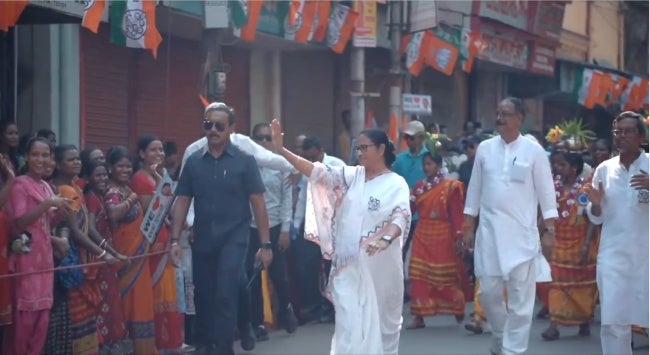
| Title: | Indian Election Results 2024: Mamata Beats Modi in West Bengal |
| Author/s: | Ronojoy Sen |
| Abstract: | The Bharatiya Janata Party (BJP) had targeted West Bengal as one of the states where it would do better in the 2024 general elections compared to 2019 and possibly compensate for losses in the Hindi belt. The results, however, were a blow to the BJP which dropped to 12 seats from 18 in 2019 and the Trinamool Congress went up from 22 to 29 seats. |
| Date: | 11 June 2024 |
| Read More |
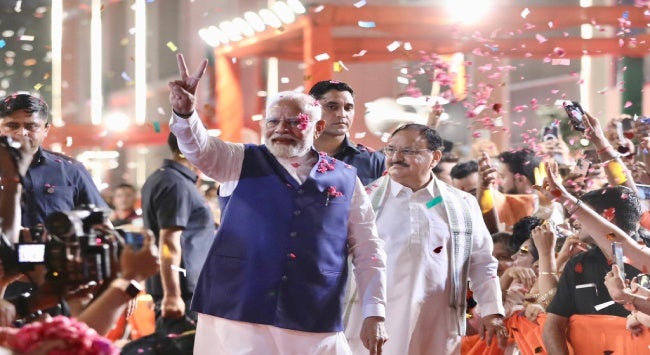
| Title: | Indian Election Results 2024: Modi Returns for Third Term with Reduced Numbers |
| Author/s: | Ronojoy Sen |
| Abstract: | India’s Prime Minister Narendra Modi had declared before the general elections that the Bharatiya Janata Party (BJP) would win 370 seats and the National Democratic Alliance (NDA) over 400 in the general elections. The results announced on 4 June 2024 saw the BJP win 240 seats and fall well below the majority mark in the Lower House of the Parliament (Lok Sabha). The reasons for the result could be traced to Modi’s weakening attraction among voters compared to the last two general elections, the absence of a grand narrative in the BJP’s campaign, the salience of issues like unemployment and a robust campaign by the opposition. |
| Date: | 7 June 2024 |
| Read More |
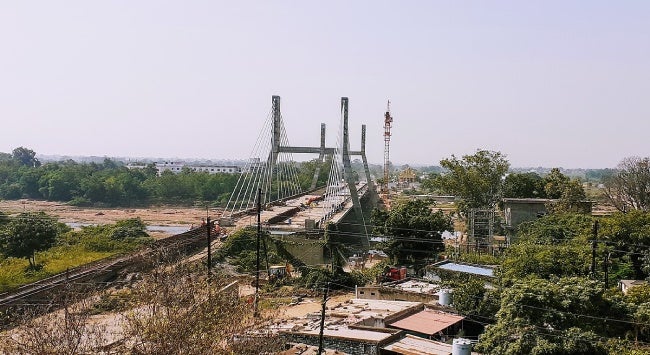
| Title: | Indian Election Results 2024: Little Impact of High Economic Growth |
| Author/s: | Amitendu Palit |
| Abstract: | A high growth rate of the economy did not lead to a bigger mandate for India’s incumbent government. Pressures of running a coalition might force the incoming government to embrace populism, which will be bad economics and not necessarily good politics. |
| Date: | 7 June 2024 |
| Read More |
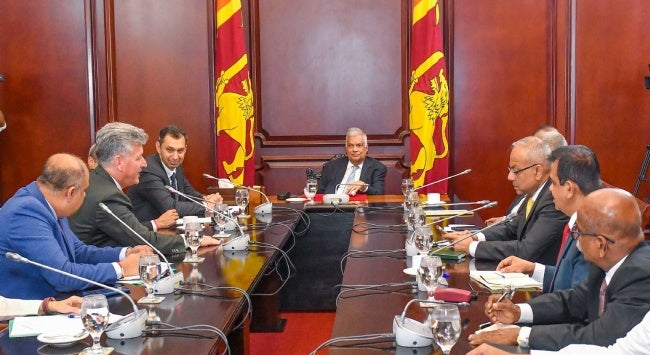
| Title: | Sri Lankan’s Regional Partnerships Amidst Growing Domestic Political Uncertainty |
| Author/s: | Rajni Gamage |
| Abstract: | In 2024, the Sri Lankan government has continued to navigate the fallouts of the 2022 economic crisis. The country’s engagement with key bilateral players can be broadly categorised into the administrative reform, security and economic sectors. Unfolding domestic political events will significantly impact these evolving regional partnerships. |
| Date: | 30 May 2024 |
| Read More |
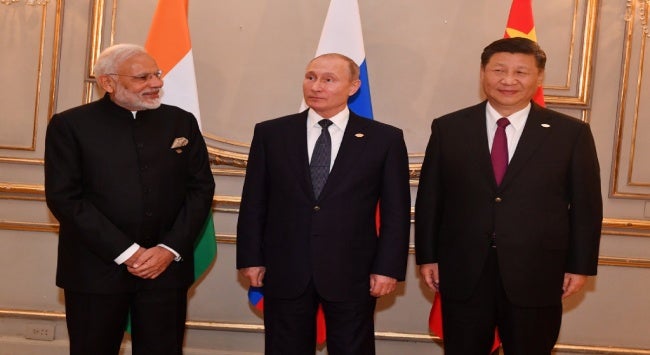
| Title: | India and the Sino-Russian Entente |
| Author/s: | Chilamkuri Raja Mohan |
| Abstract: | As Sino-Russian bilateral relations continue to deepen and point to greater strategic coordination between Beijing and Moscow in Asia and the Indo-Pacific, India will have to reassess its assumptions about Russia’s future geopolitical orientation. Sino-Russian partnership in the east is likely to undermine India’s quest to balance China and build a ‘multipolar Asia’; this, in turn, will demand a recalibration of India’s great power relations. |
| Date: | 28 May 2024 |
| Read More |
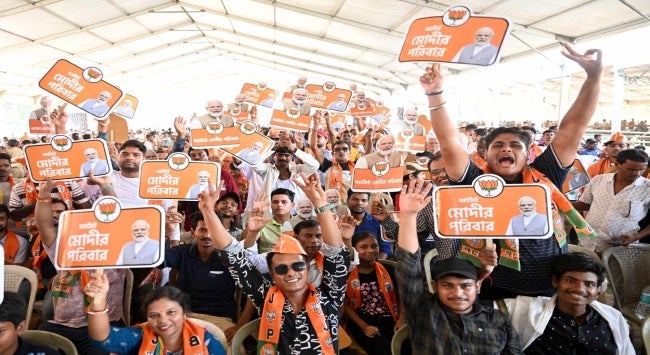
| Title: | Indian Elections 2024: The BJP has High Hopes in West Bengal |
| Author/s: | Ronojoy Sen |
| Abstract: | West Bengal is one of the few states where the voter turnout in the ongoing India general election has been high. Though the Bharatiya Janata Party hopes to win at least 25 of the 42 Lok Sabha (Lower House of the Parliament) seats in West Bengal, it could prove to be an uphill task, given the strength of the Trinamool Congress, the ruling party in the state. |
| Date: | 28 May 2024 |
| Read More |
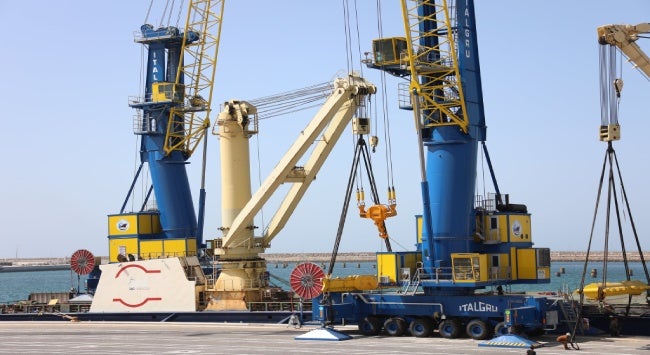
| Title: | India-Iran Agreement on Chabahar Port: Boost for Global Supply Chain |
| Author/s: | Vinod Rai |
| Abstract: | India and Iran have finally signed a 10-year operational contract for India to develop the Shahid Behesti terminal at the Chabahar port. Conceived more than two decades ago, this project faced delays as it was mired in complex geopolitical challenges. The project, seen as India’s response to China’s Belt and Road Initiative, offers manifold trade and strategic alternatives not only to India but other countries seeking to access markets and regions in Asia and Africa. The project will significantly enhance the global supply chain and save on time and transit costs. |
| Date: | 21 May 2024 |
| Read More |
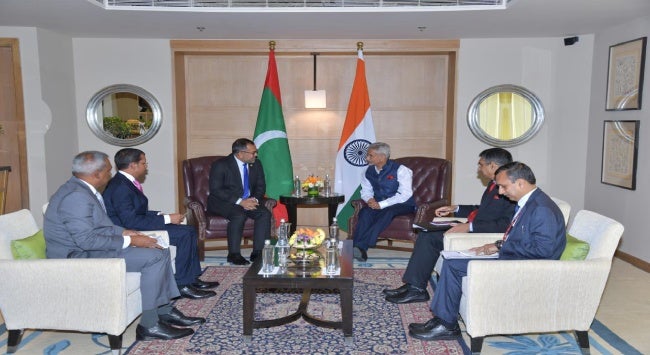
| Title: | Maldivian Foreign Minister’s India Visit: Little Impact on Bilateral Ties |
| Author/s: | Amit Ranjan |
| Abstract: | In an effort to mend ties with New Delhi, the Maldives’ Foreign Minister Moosa Zameer arrived in New Delhi on 8 May 2024. However, given the frosty ties between the two countries since Mohamed Muizzu was elected to power in the Maldives, there is little room for optimism about improving their bilateral relations anytime soon. |
| Date: | 20 May 2024 |
| Read More |
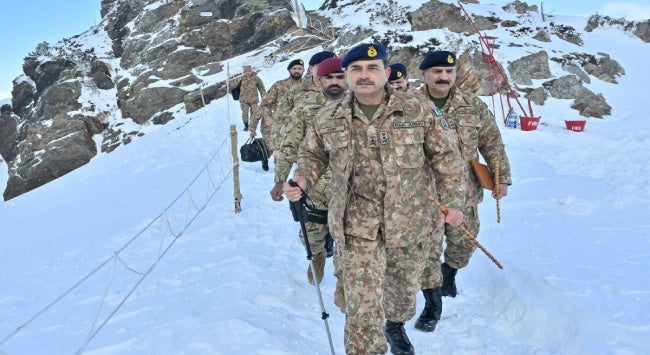
| Title: | Elections and Foreign Policy: India’s Pakistan Debate |
| Author/s: | Chilamkuri Raja Mohan |
| Abstract: | India’s debate on Pakistan during the 2024 general elections reveals little about the record of the Bharatiya Janata Party (BJP) and Congress Party governments on engaging Pakistan. Although the BJP finds Pakistan a valuable punching bag during the elections, Prime Minister Narendra Modi is hopefully ready to pick up the threads of engagement with Islamabad if he wins a third term. |
| Date: | 16 May 2024 |
| Read More |
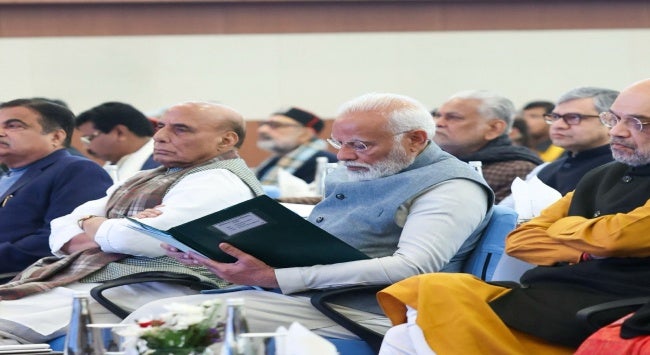
| Title: | Indian Election 2024: A Road Map for the New Government |
| Author/s: | Vinod Rai |
| Abstract: | India’s general election is coming to a close. Soon a new government will assume office. It is largely anticipated that the present National Democratic Alliance government led by Narendra Modi will get a third term. The Indian prime minister has already embarked on an agenda to prepare an action-oriented road map so that the newly inducted ministers will hit the ground running. Some of the priority sectors needing urgent attention will be health, education, employment and infrastructure. Clean energy and the environment will also top the agenda. |
| Date: | 10 May 2024 |
| Read More |

| Title: | Nepal’s Third Investment Summit: Hope for Increased Investments |
| Author/s: | Puspa Sharma |
| Abstract: | Investment summits are important in expressing a country’s desire for investments, including foreign direct investment (FDI) and showcasing potential projects. However, they alone do not ensure FDI inflows. It is crucial for the country to address the genuine challenges that have obstructed the inflow of FDIs. |
| Date: | 8 May 2024 |
| Read More |
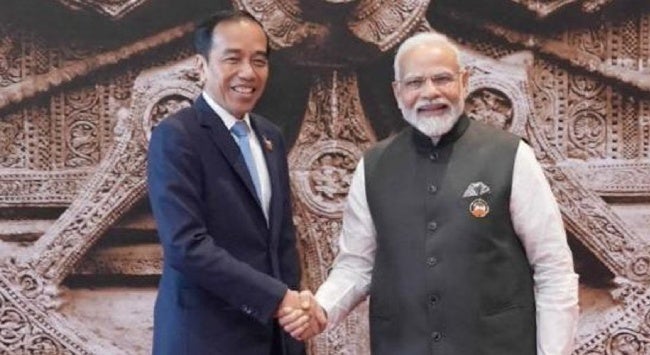
| Title: | India-Indonesia Relations: Breaking Barriers in the Indo-Pacific |
| Author/s: | Karthik Nachiappan |
| Abstract: | India and Indonesia are two Asian powers whose economic futures look optimistic. Yet, opportunities for further cooperation between New Delhi and Jakarta have not been fully explored or realised for various reasons. |
| Date: | 8 May 2024 |
| Read More |

| Title: | India’s Nimble AI Approach |
| Author/s: | Karthik Nachiappan |
| Abstract: | The Indian government’s issue and subsequent withdrawal of a startling Artificial Intelligence (AI) advisory testifies to the nimbleness and agility of the government’s AI approach and plans. |
| Date: | 7 May 2024 |
| Read More |
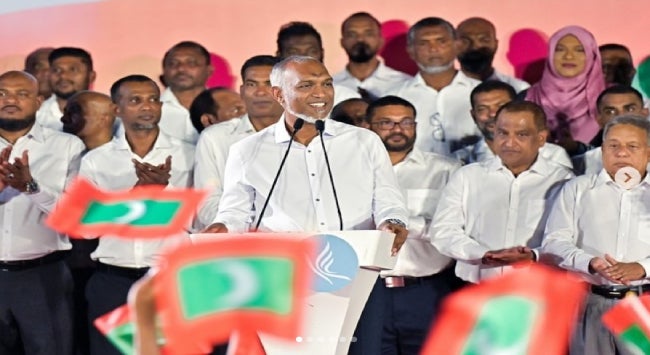
| Title: | Parliamentary Elections in the Maldives |
| Author/s: | Amit Ranjan |
| Abstract: | The recent parliamentary election results in the Maldives show that a large number of the voters have unequivocally approved President Mohamed Muizzu’s policies and politics. This has strengthened his political position while weakening the divided opposition. |
| Date: | 26 April 2024 |
| Read More |
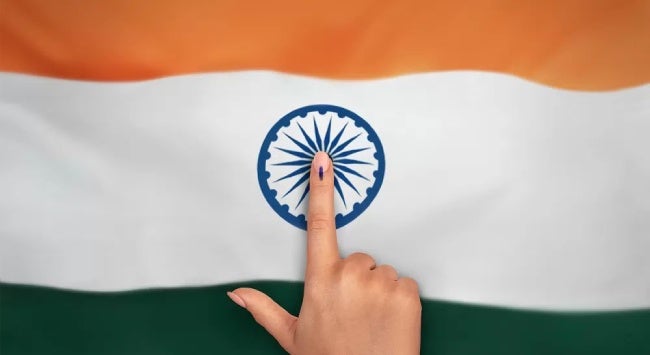
| Title: | What are India’s Voters Thinking? |
| Author/s: | Ronojoy Sen |
| Abstract: | Polling for India’s seven-phase general elections began on 19 April 2024. A recently published survey provides clues to what the Indian electorate might be thinking. While Prime Minister Narendra Modi still remains very popular, voters have expressed serious concerns about economic distress. |
| Date: | 19 April 2024 |
| Read More |
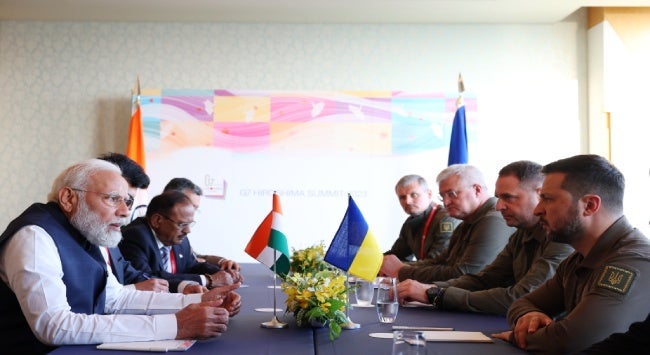
| Title: | India and the Ukraine Peace Conference |
| Author/s: | Chilamkuri Raja Mohan |
| Abstract: | The official Swiss invitation to India to participate in the Ukraine peace summit in Geneva in June 2024 highlights the West’s recognition of the importance of drawing New Delhi into the diplomatic efforts to end the war in the heart of Europe that has entered the third year. It also offers India an opportunity to recalibrate its position on the war and take a fresh look at security engagement with Europe. |
| Date: | 18 April 2024 |
| Read More |

| Title: | India’s Elections 2024: Impact on its Economic Rise |
| Author/s: | Amitendu Palit |
| Abstract: | India’s general elections are grabbing great attention for their scale and impact on the country’s future economic progress. Tipped to become the world’s third largest economy soon, the new government chosen by the people has to deliver on pending reforms amidst challenges. |
| Date: | 11 April 2024 |
| Read More |
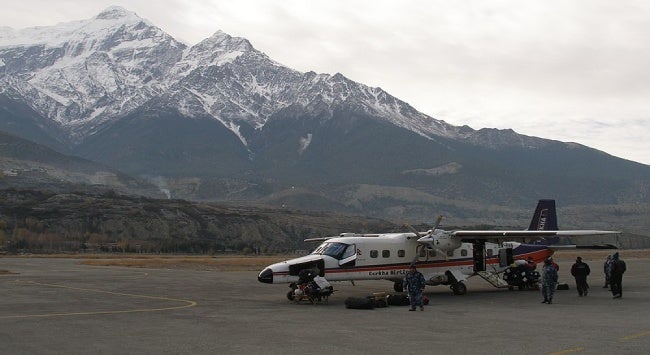
| Title: | Nepal-China Connectivity Endeavours |
| Author/s: | Puspa Sharma |
| Abstract: | In spite of Nepal signing a memorandum of understanding with China seven years ago to participate in the Belt and Road Initiative (BRI), an implementation plan awaits finalisation. The recent visit by Nepal’s foreign minister to China is expected to provide a fillip to move this plan forward. However, caution is warranted in choosing viable projects under the BRI for implementation in the Himalayan republic. |
| Date: | 9 April 2024 |
| Read More |
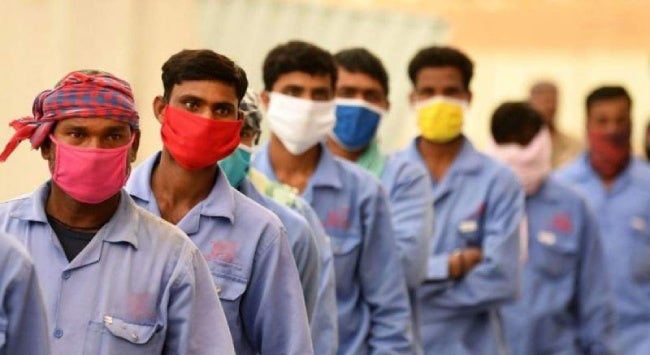
| Title: | India’s Budding Labour Diplomacy |
| Author/s: | Karthik Nachiappan, Tanujja Dadlani |
| Abstract: | India is the world’s largest exporter of labour. Its recent labour migration agreements with countries like Israel and Taiwan raise questions between countries that receive Indian workers and how it might affect India in the future. |
| Date: | 4 April 2024 |
| Read More |
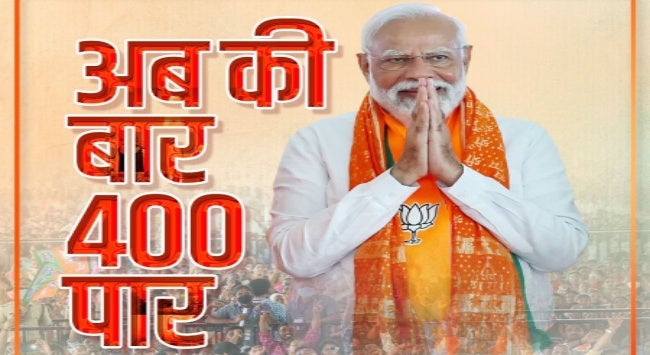
| Title: | Modi’s Election Target: Can the BJP Achieve It? |
| Author/s: | Ronojoy Sen |
| Abstract: | Weeks ahead of India’s general election, Prime Minister Narendra Modi had announced that the Bharatiya Janata Party (BJP) will win at least 370 of the 543 Lok Sabha (Lower House) seats on offer, and the BJP-led National Democratic Alliance will cross 400 seats. Does this target make sense? If so, where are the additional seats likely to come from? |
| Date: | 27 March 2024 |
| Read More |
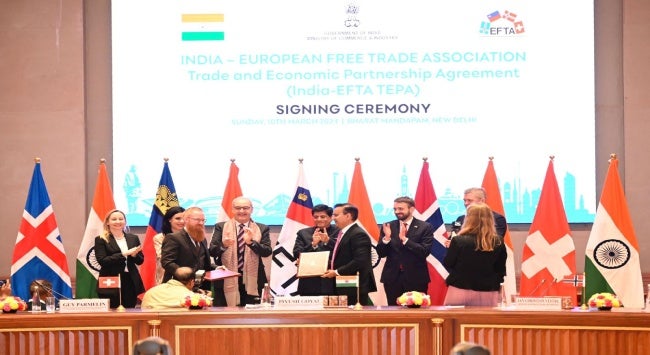
| Title: | India Commits to Labour Standards in FTAs |
| Author/s: | Amitendu Palit |
| Abstract: | India is shedding its traditional inhibition of incorporating labour standards in its free trade agreements (FTAs). This is evident from the latest FTA it has signed with the European Free Trade Association and the supply chain agreement of the Indo-Pacific Economic Framework that it has ratified. |
| Date: | 22 March 2024 |
| Read More |
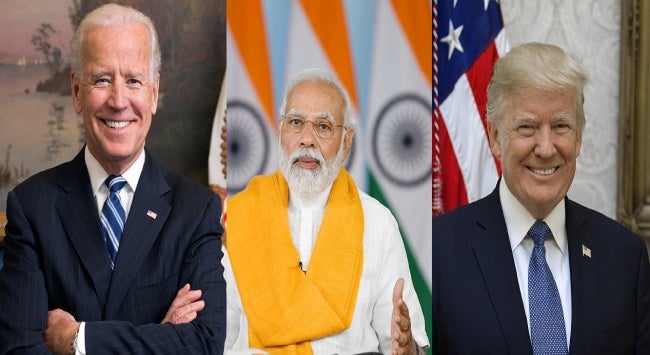
| Title: | India and the Biden-Trump Rematch |
| Author/s: | Chilamkuri Raja Mohan |
| Abstract: | As the United States (US) prepares for a Joe Biden-Donald Trump ‘rematch’ for the White House at the end of 2024, India, arguably, is among the least apprehensive about the outcome of the elections. Unlike the US’ allies in Europe and Asia, who are deeply anxious about the return of Trump to the White House, New Delhi is confident about the familiar bipartisan continuity in the US’ engagement with India. Yet, New Delhi should pay close attention to the potential volatility in the US’ engagement with the world under Trump and its consequences for India. |
| Date: | 18 March 2024 |
| Read More |
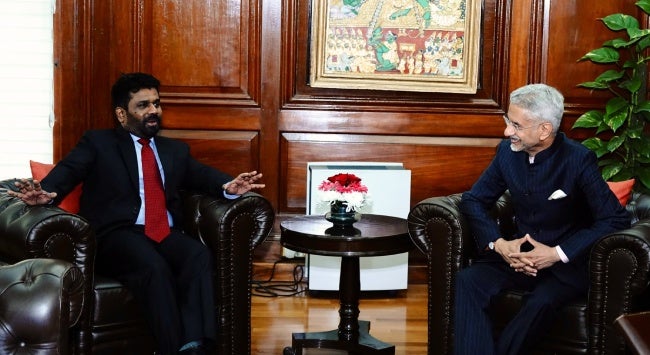
| Title: | Sri Lanka-India Relations in 2024 |
| Author/s: | Rajni Gamage |
| Abstract: | Sri Lanka’s relations with India are expected to deepen in 2024. Following crucial assistance provided by India during Sri Lanka’s 2022 crisis, there is greater engagement in investment and tourism. With the upcoming presidential elections, all key political actors in Colombo recognise the importance of maintaining close relations with its largest neighbour. |
| Date: | 1 March 2024 |
| Read More |
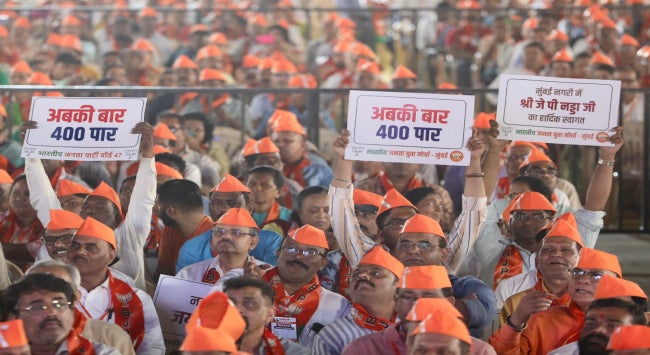
| Title: | India’s Opposition on the Back Foot |
| Author/s: | Ronojoy Sen |
| Abstract: | With the general elections in India expected to be announced soon, the opposition faces an uphill task in preventing Prime Minister Narendra Modi’s recent prediction of an overwhelming majority for the Bharatiya Janata Party from coming true. |
| Date: | 22 February 2024 |
| Read More |
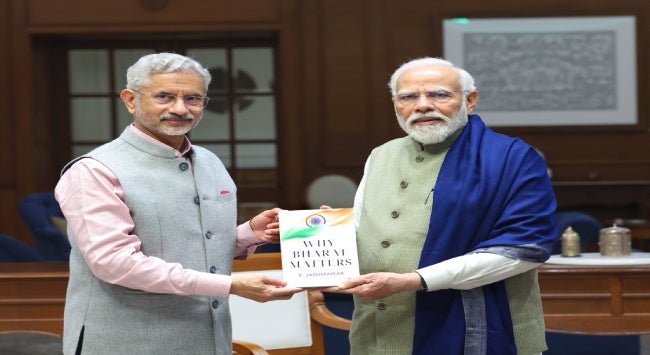
| Title: | India’s New Alignment: “Non-West” but Not “Anti-West” |
| Author/s: | Chilamkuri Raja Mohan |
| Abstract: | In a new and productive framing of India’s current relationship with the West, External Affairs Minister Subrahmanyam Jaishankar has broken out of India’s prolonged post-colonial corner that it had boxed itself into. By affirming that India is not “anti-West” but “non-West”, Jaishankar has expanded the domestic room for manoeuvre on great powers relations. The new framing allows Delhi to seek deeper ties with the United States and Europe without being branded as pro-West at home. |
| Date: | 19 February 2024 |
| Read More |
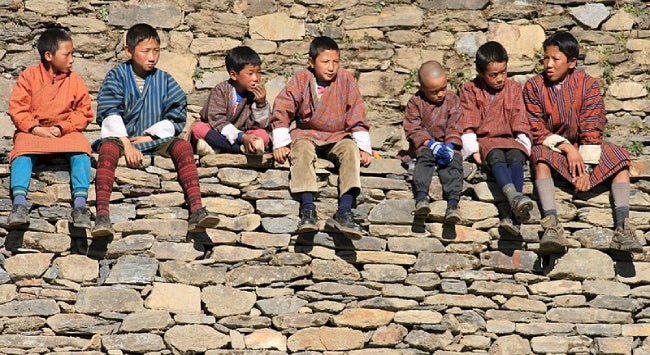
| Title: | Bhutan’s Graduation from the LDC List: Navigating Future Challenges |
| Author/s: | Amit Ranjan |
| Abstract: | On 13 December 2023, Bhutan officially exited the list of Least Developed Countries (LDCs). The graduation from the LDC status is a monumental achievement for Bhutan. However, it will result in several challenges for the Himalayan kingdom. |
| Date: | 19 February 2024 |
| Read More |
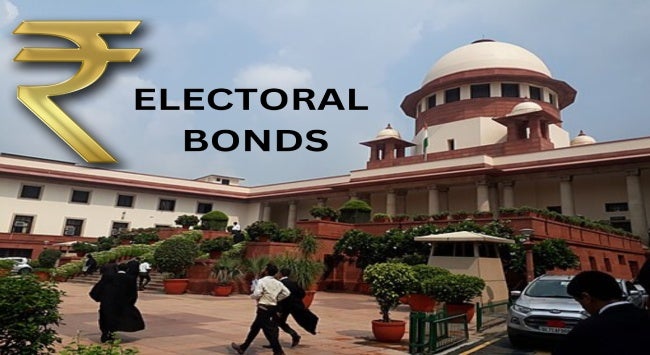
| Title: | India’s Electoral Bond Scheme: Declared Unconstitutional by the Court |
| Author/s: | Vinod Rai |
| Abstract: | The Supreme Court struck down, as unconstitutional, the electoral bond scheme introduced by the Bharatiya Janata Party government in 2018. The Court upheld the voter’s right to transparency and felt that the source of corporate funding through electoral bonds could not be opaque. It restrained the State Bank of India from issuing more bonds and directed it to reveal the details of past funding to the Election Commission of India which would be placed on its website. |
| Date: | 19 February 2024 |
| Read More |
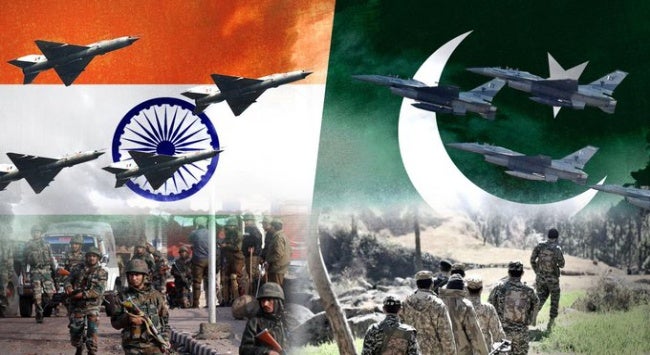
| Title: | Five Years of Balakot: A New Nuclear South Asia |
| Author/s: | Yogesh Joshi |
| Abstract: | How has South Asia’s nuclear dynamics shifted after five years of India’s air strikes against terrorist safe havens in Pakistan’s Balakot? This paper argues that India’s punitive military action not only imposed direct costs on the Pakistani Army but also called into question Pakistan’s nuclear redlines. Balakot has allowed India to overcome from the stranglehold of self-deterrence obtained in the aftermath of the 1998 tests and nuclear tests by the two South Asian rivals. |
| Date: | 16 February 2024 |
| Read More |
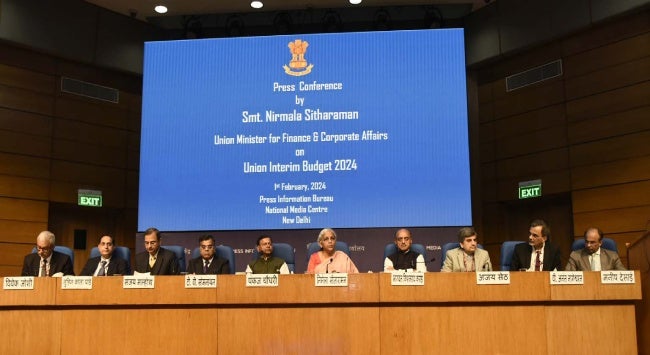
| Title: | India’s Vote on Account 2024: A Signal of its Long-term Intents |
| Author/s: | Vinod Rai |
| Abstract: | This being an election year for India, the government presented only a vote on account in early February 2024. This will permit it to incur routine expenditures over the next four months. The vote on account has been conservative on its tax buoyancy, it attempts very ambitious fiscal deficit targets, abjures populist freebies and continues its increased spending on the development of infrastructure. The government has taken a long-term view and decided to abjure short-term measures. |
| Date: | 7 February 2024 |
| Read More |
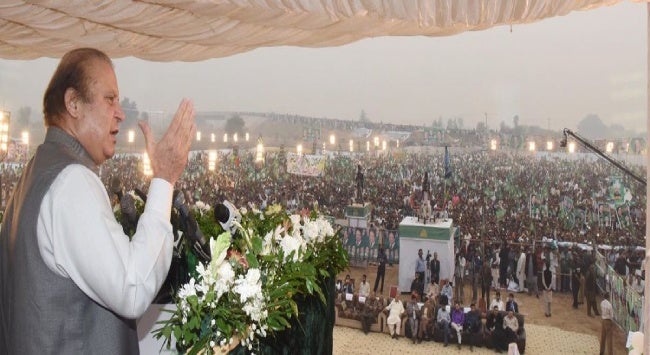
| Title: | Pakistan’s February 2024 Elections: A Sense of Uncertainty Prevails |
| Author/s: | Imran Ahmed, Muhammad Saad Ul Haque |
| Abstract: | The elections in Pakistan on 8 February 2024 carry significant implications for the nation’s political and economic future. Former Prime Minister Nawaz Sharif, returning from exile, is predicted to become the next prime minister, despite a historically tumultuous relationship with the army. Since Imran Khan’s 2022 ouster, Sharif has faced legal challenges, electoral hurdles and a media blackout. Despite political campaigns, a sense of uncertainty prevails among Pakistanis leading up to the polls. |
| Date: | 6 February 2024 |
| Read More |
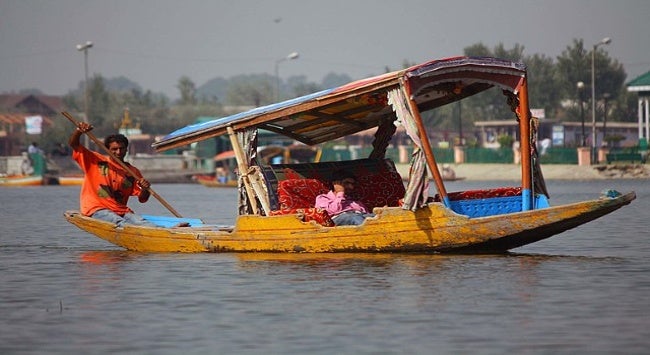
| Title: | Kashmir’s Uncertain Future: Reactions to the Supreme Court’s Article 370 Verdict |
| Author/s: | Imran Ahmed, Muhammad Saad Ul Haque |
| Abstract: | In August 2019, India’s Home Minister Amit Shah announced the abrogation of Article 370 in Jammu and Kashmir, triggering a range of reactions. Despite the Bharatiya Janata Party’s promises to stabilise the region, the move intensified tensions, leading to protests, unrest and curfews. The December 2023 Supreme Court verdict heightened uncertainty in Kashmir. Reactions from Kashmiris mirror the fear and anger following the 2019 decision, with concerns about the erosion of democratic trust and further centralisation. The upcoming elections in April/Mau 2024 and continued tensions exacerbate an already complex situation, compounded by rising unemployment, environmental challenges and fears of discrimination against the locals. |
| Date: | 1 February 2024 |
| Read More |
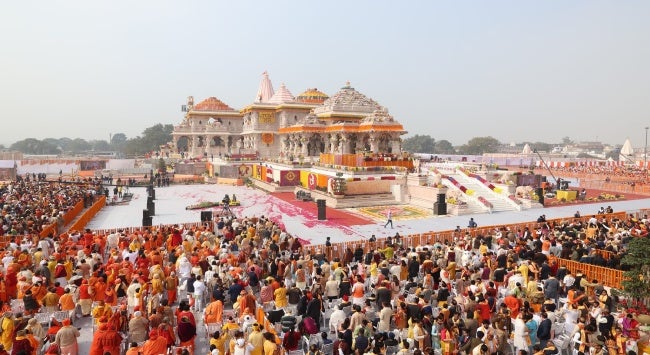
| Title: | The Many Shades of Ayodhya’s Ram Temple |
| Author/s: | Ronojoy Sen |
| Abstract: | The opening of the Ram temple in Ayodhya in India on 22 January 2024 was a landmark event. Welcomed by many and decried by some, it takes the Indian republic into unfamiliar territory. |
| Date: | 1 February 2024 |
| Read More |
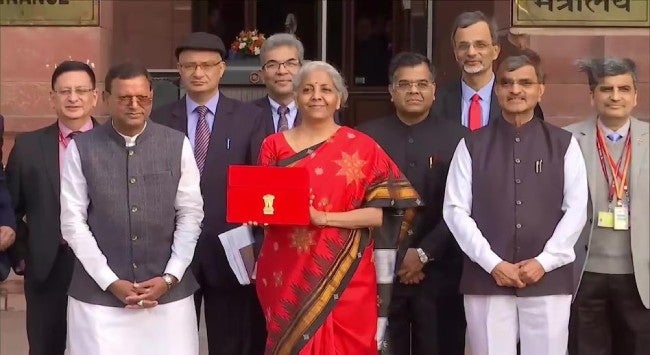
| Title: | Decoding the Vote on Account in 2024 |
| Author/s: | Vinod Rai |
| Abstract: | India’s Finance Minister Nirmala Sitharaman will present her sixth budget on 1 February 2024. However, since the general election is due in a couple of months, this will not be a full budget. As per tradition, only a Vote on Account will be presented. It is to be seen whether this Vote on Account will merely seek permission to draw from the consolidated fund or also include some political messaging. |
| Date: | 23 January 2024 |
| Read More |
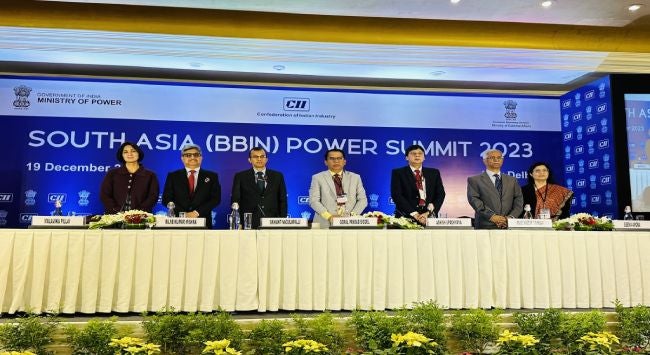
| Title: | Reimagining South Asia |
| Author/s: | Sujeev Shakya |
| Abstract: | South Asia is evolving. Old structures are giving way to new ones. It is time to make sub-regional co-operation platforms like BBIN (Bangladesh, Bhutan, India and Nepal) work. Can East South Asia lead the way? |
| Date: | 22 January 2024 |
| Read More |

| Title: | India’s AI Future(s) |
| Author/s: | Karthik Nachiappan |
| Abstract: | India’s artificial intelligence approach must adapt to new geoeconomic realities that have seen power concentrated among a few companies and countries. |
| Date: | 22 January 2024 |
| Read More |
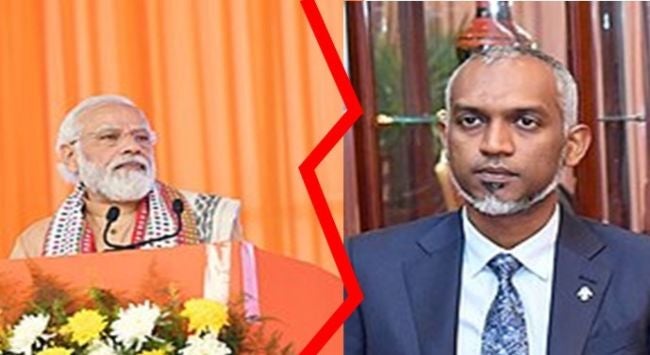
| Title: | India and the Maldives: The Perils of Hyper-nationalism |
| Author/s: | Chilamkuri Raja Mohan |
| Abstract: | New Delhi and Male will need much prudence in dealing with a difficult moment in bilateral relations. The ability of the two governments to reset the relationship is being complicated by the hyper-nationalists on both sides that have turned a delicate situation into a crisis. |
| Date: | 20 January 2024 |
| Read More |
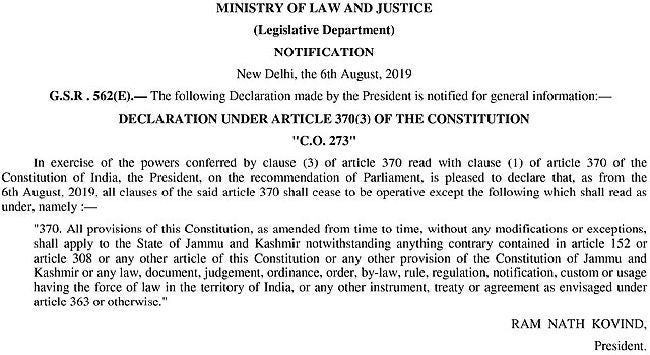
| Title: | Abrogation of Article 370: An Analysis of the Supreme Court Verdict |
| Author/s: | Imran Ahmed, Muhammad Saad Ul Haque |
| Abstract: | Despite the anticipation of a reversal, the Supreme Court of India upheld the constitutional validity of the abrogation of Article 370, leading to a continued divide in public opinion. This paper discusses the court’s recent verdict and covers the historical context, challenges to constitutional changes, the Supreme Court’s rationale and the ongoing repercussions of the abrogation, including media crackdowns, human rights concerns and political developments. |
| Date: | 13 January 2024 |
| Read More |
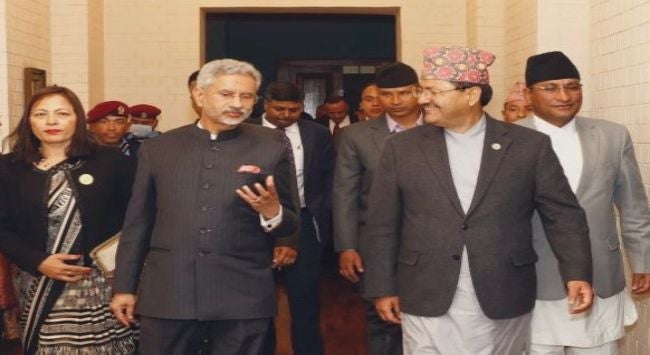
| Title: | Long-term Power Purchase Agreement: A Win-win Deal for Nepal and India |
| Author/s: | Puspa Sharma |
| Abstract: | Nepal and India recently signed an agreement that guarantees 10,000 megawatts of hydroelectricity exports from Nepal to India over the long term. The success of this agreement depends on several factors. It is in the interest of Kathmandu and New Delhi to consider these factors to ensure a win-win situation for both of them. |
| Date: | 10 January 2024 |
| Read More |
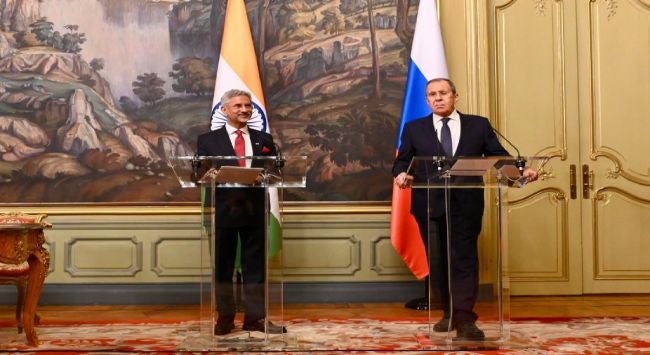
| Title: | Russia in India’s Great Power Diplomacy |
| Author/s: | Chilamkuri Raja Mohan |
| Abstract: | Reassuring Russia has been a major objective of Indian diplomacy in the last few years, even as India built a strong strategic partnership with the United States. Moscow’s deteriorating ties with the West, its growing strategic partnership with Beijing and the deterioration of India’s relations with China provide the complex background in which Delhi is managing its ties with Moscow. |
| Date: | 8 January 2024 |
| Read More |
Load more


